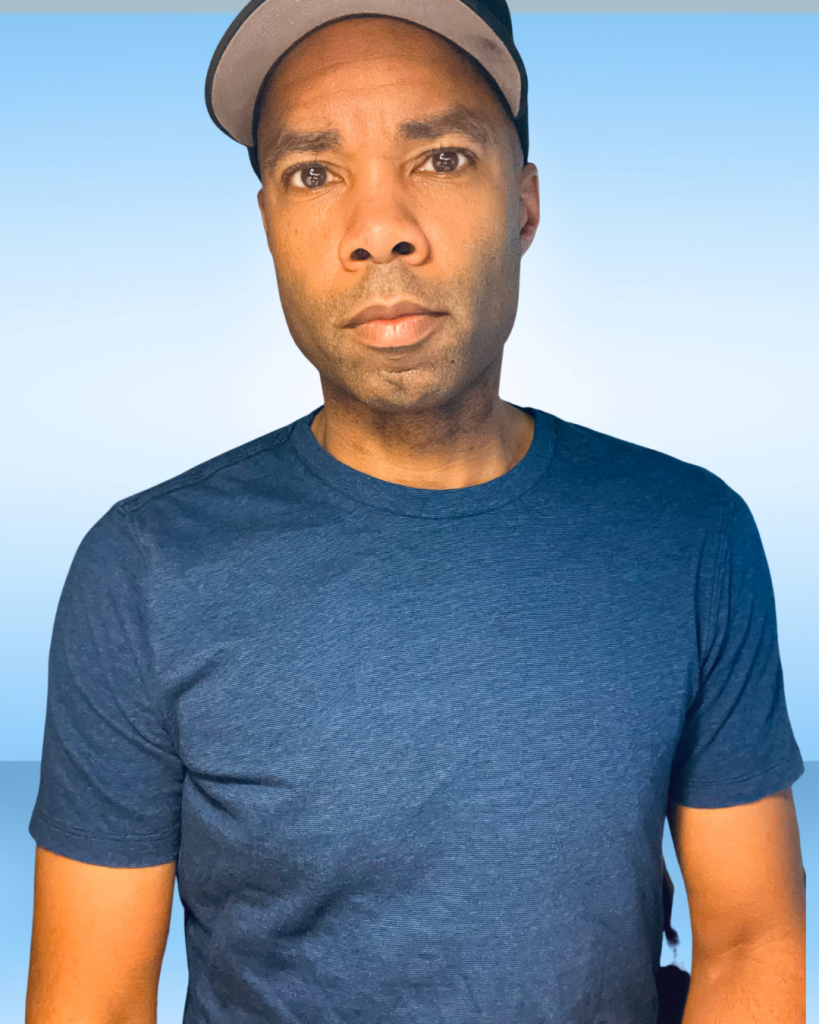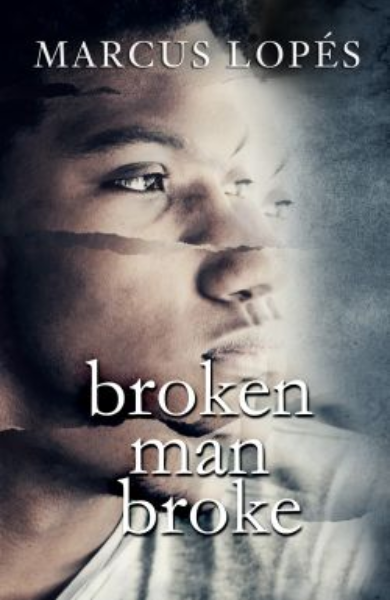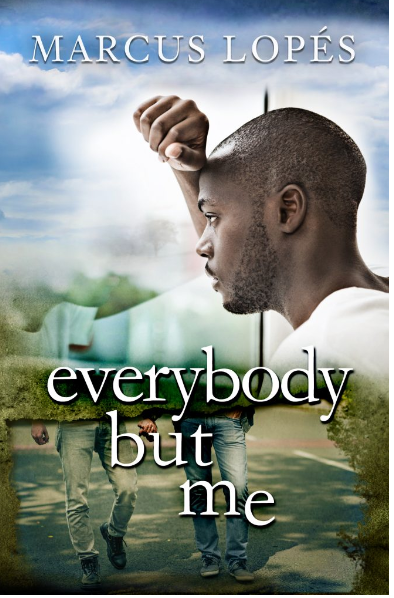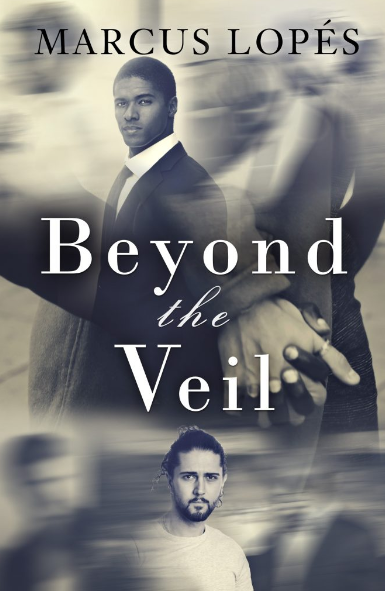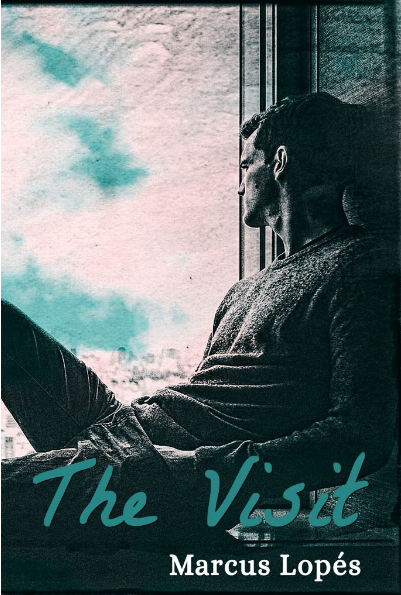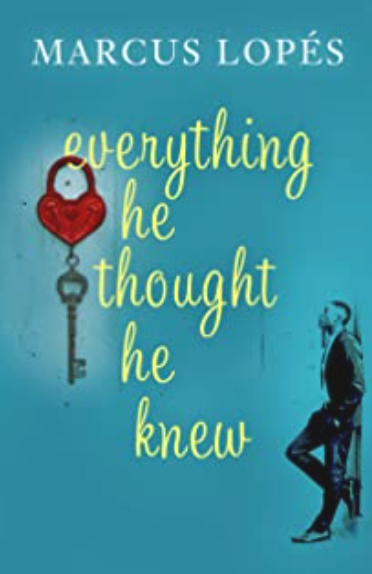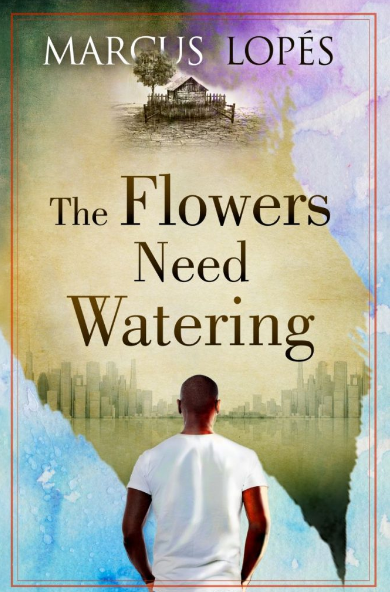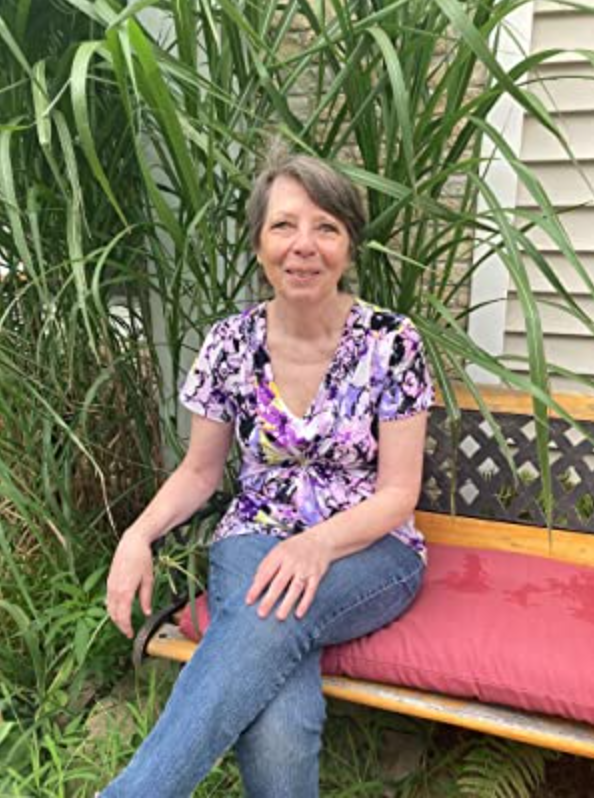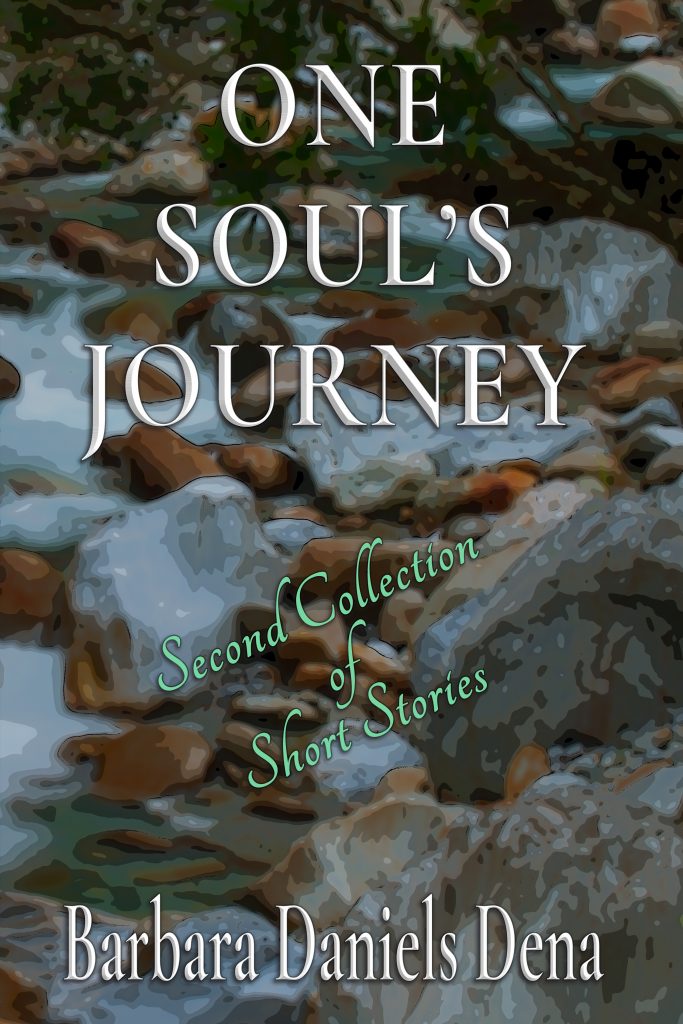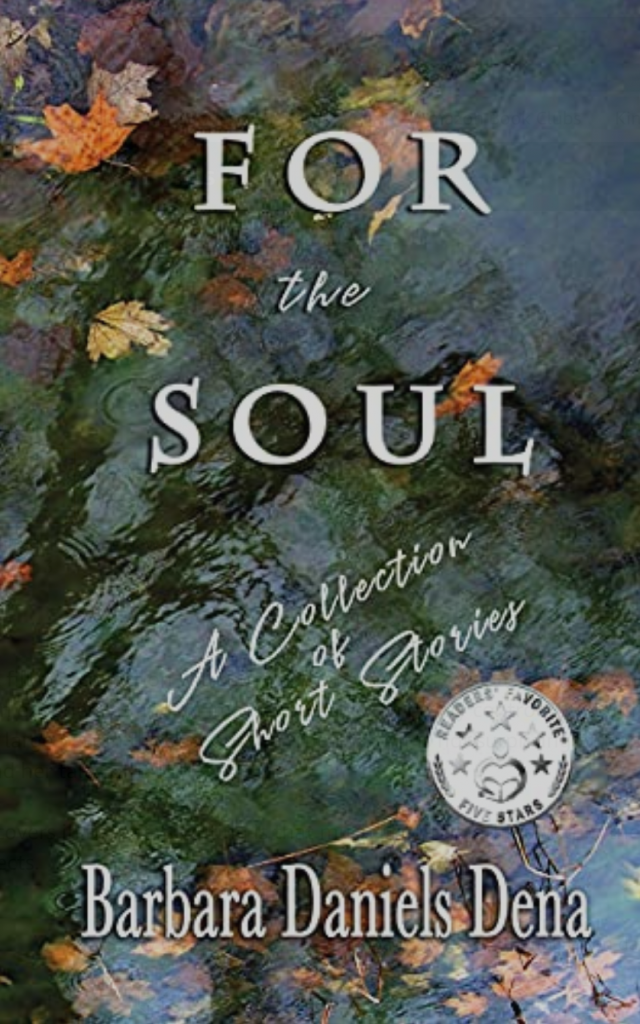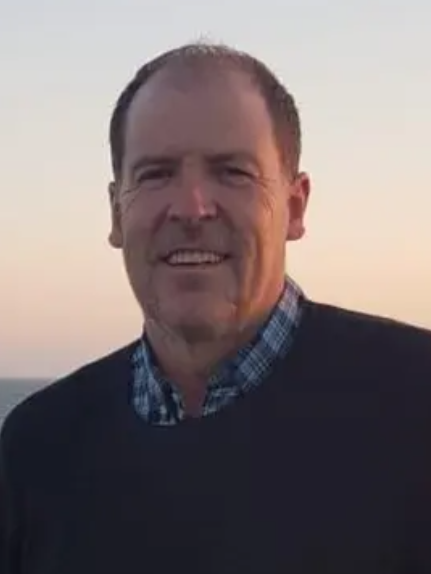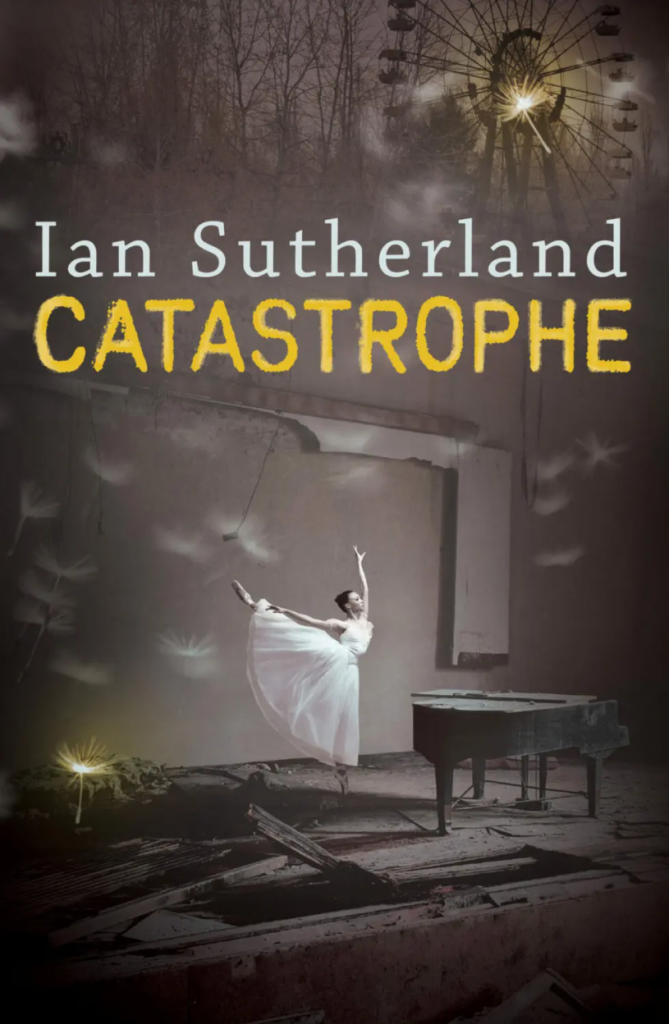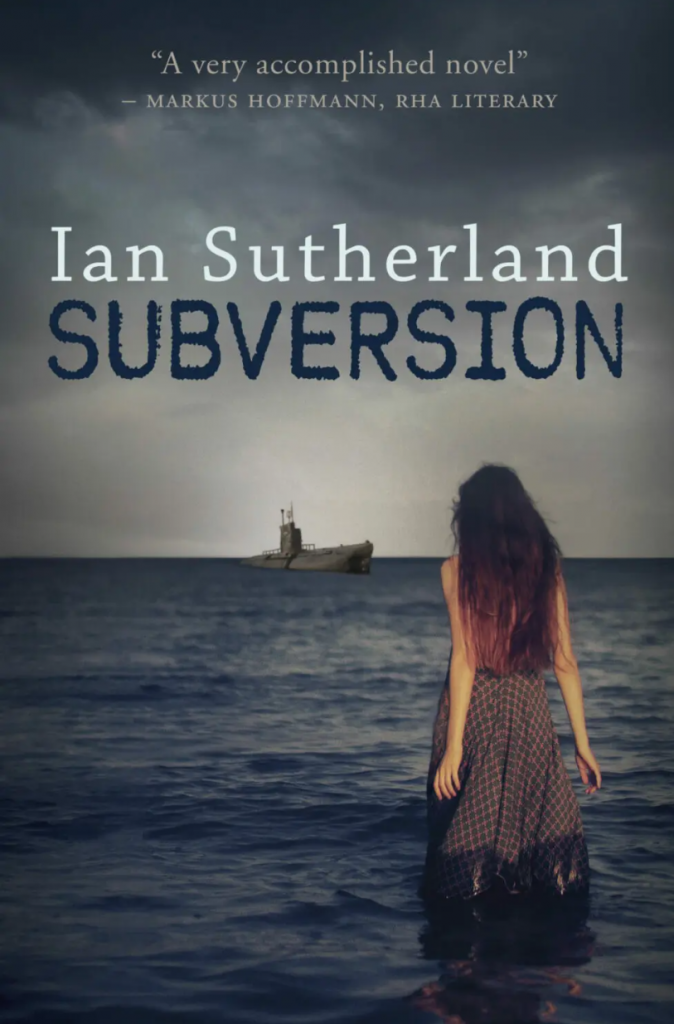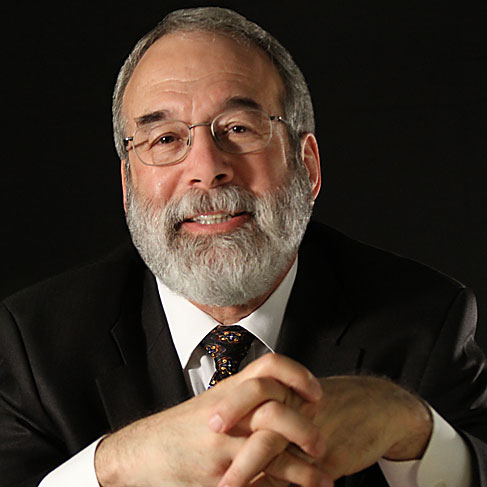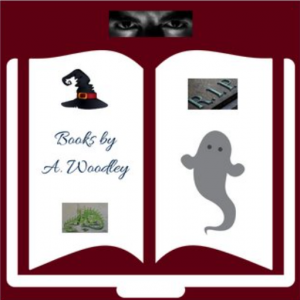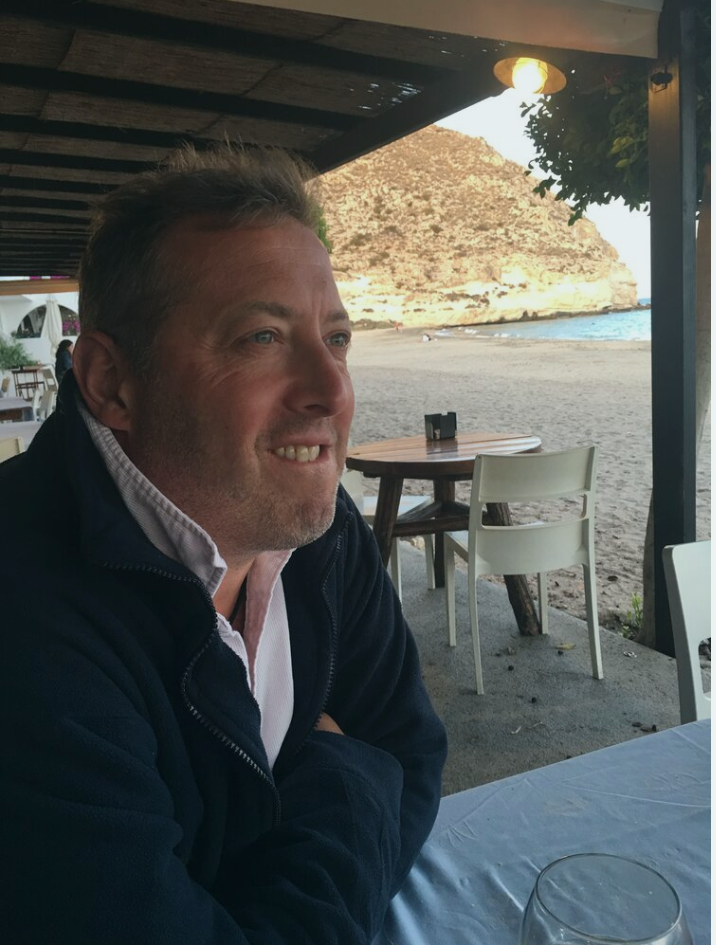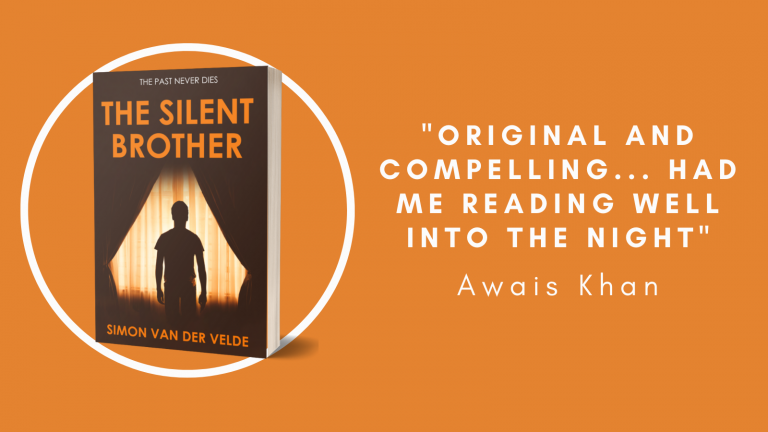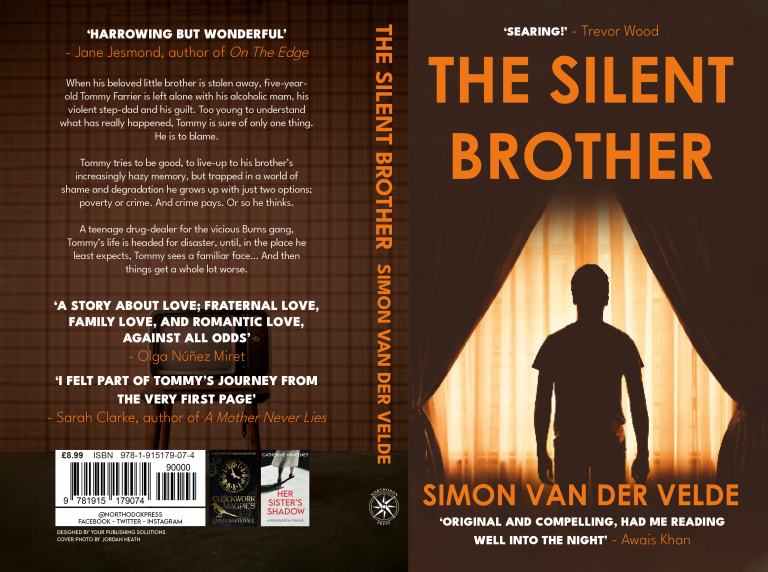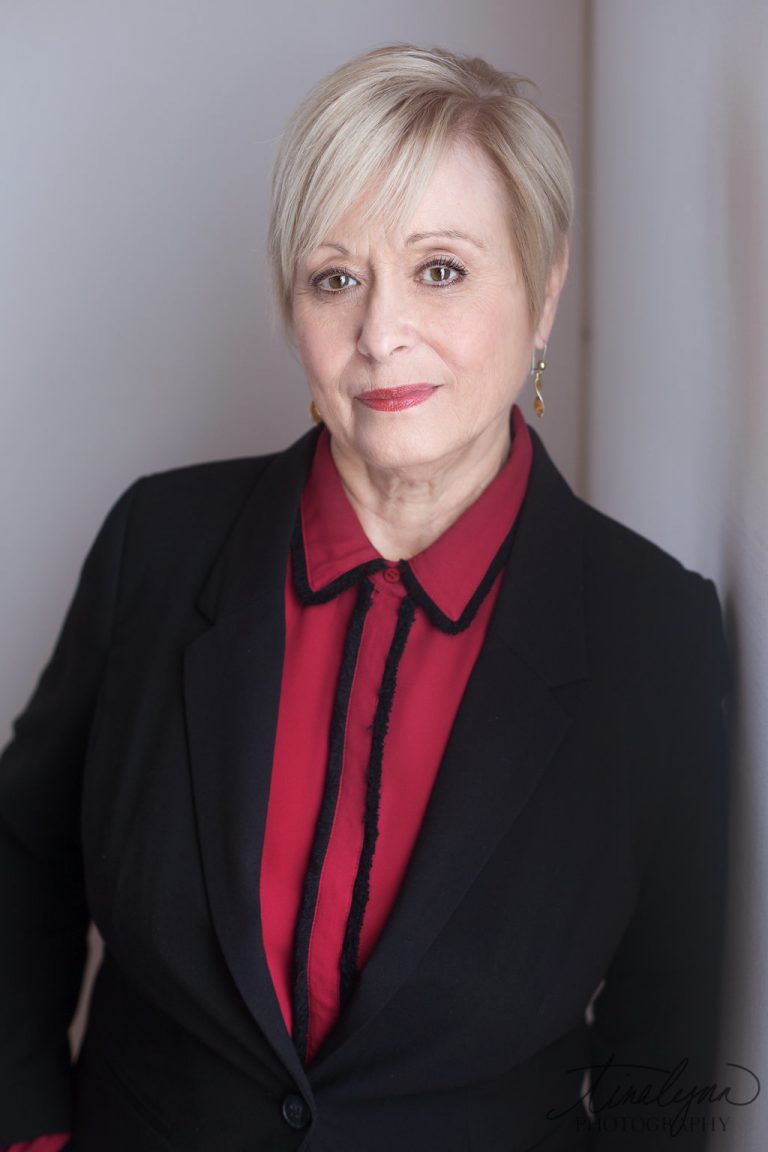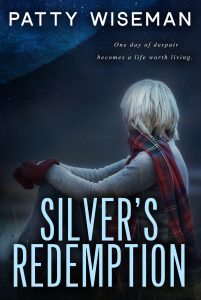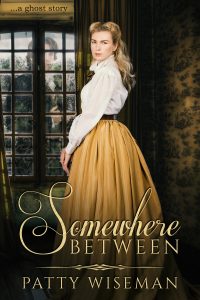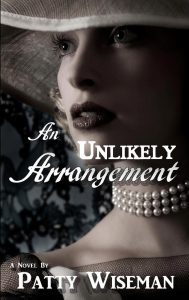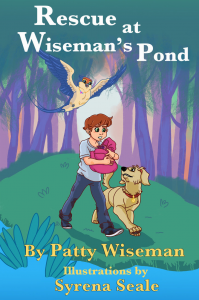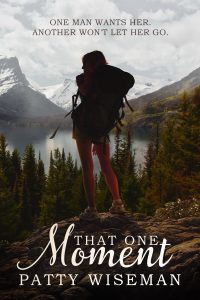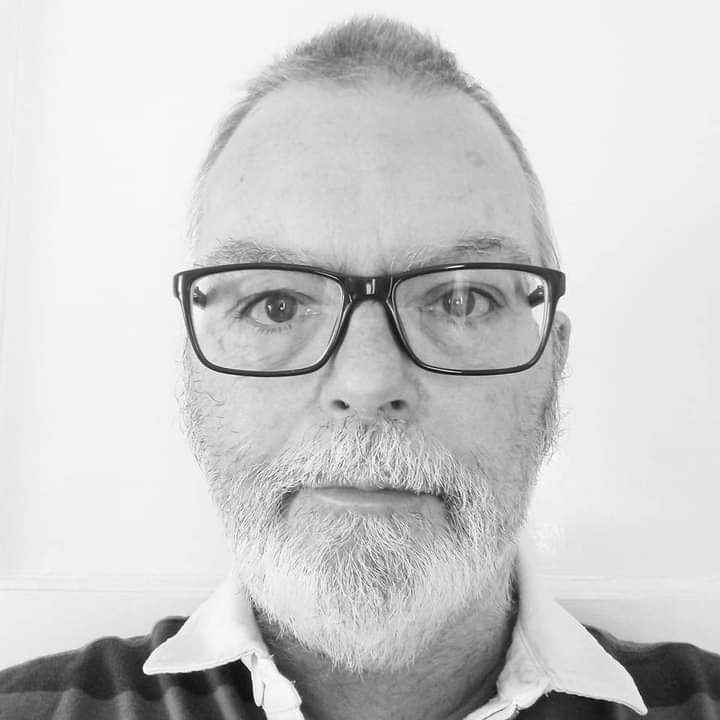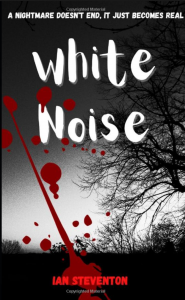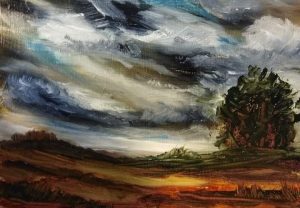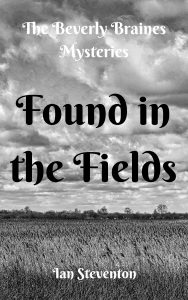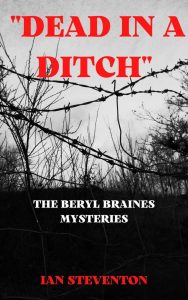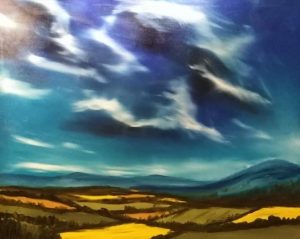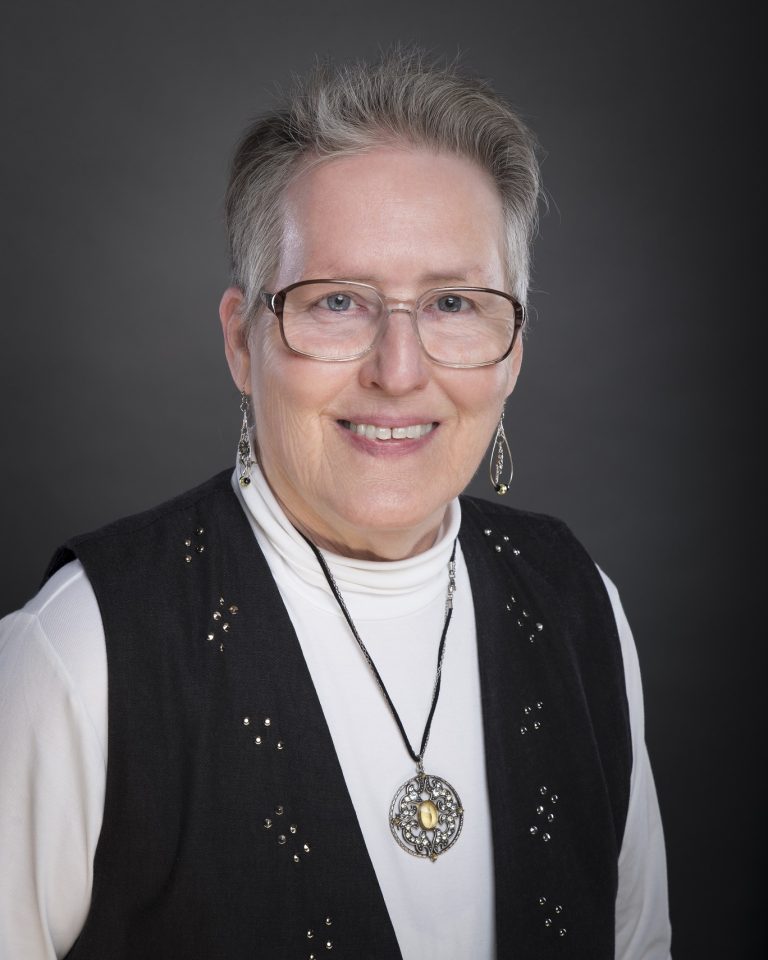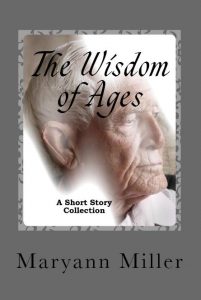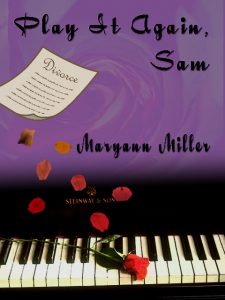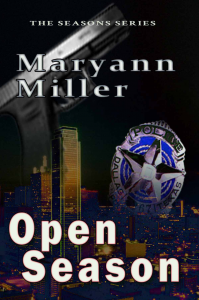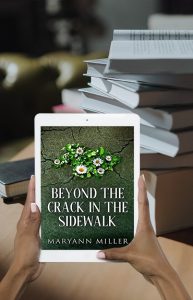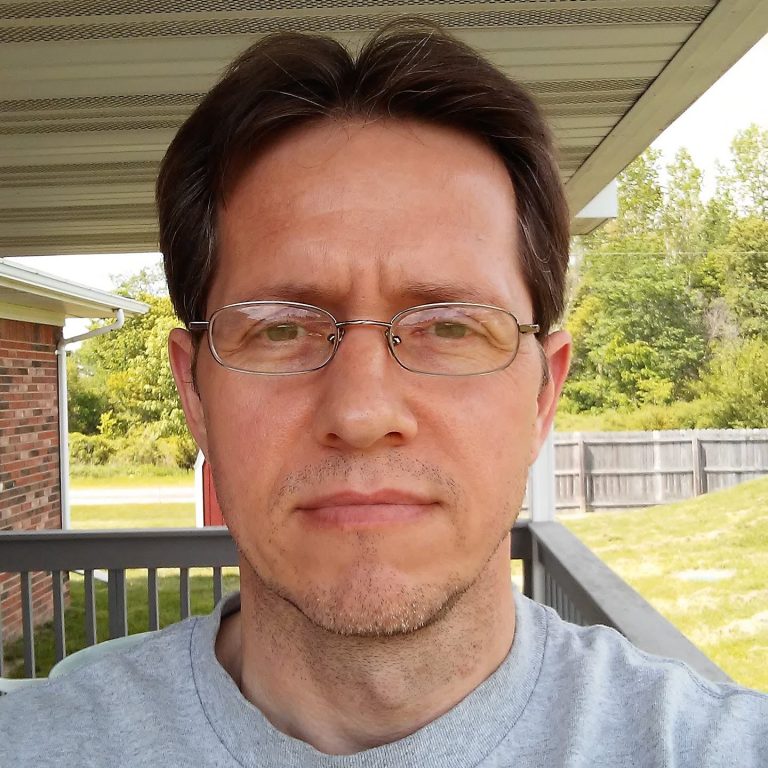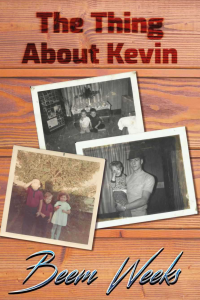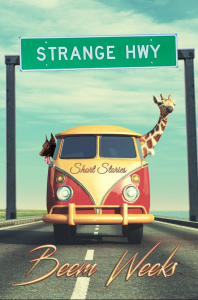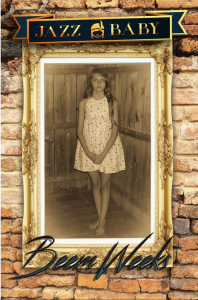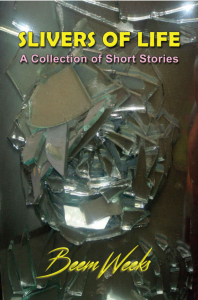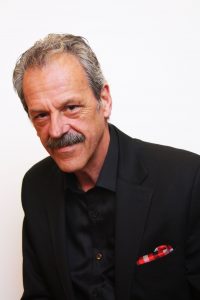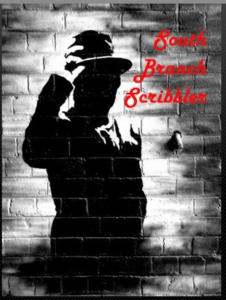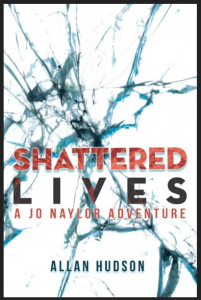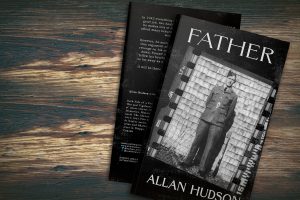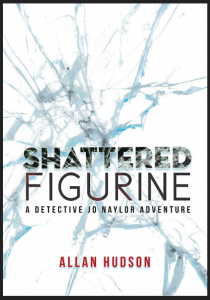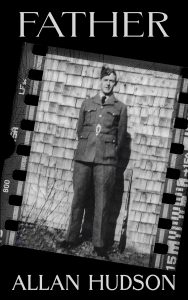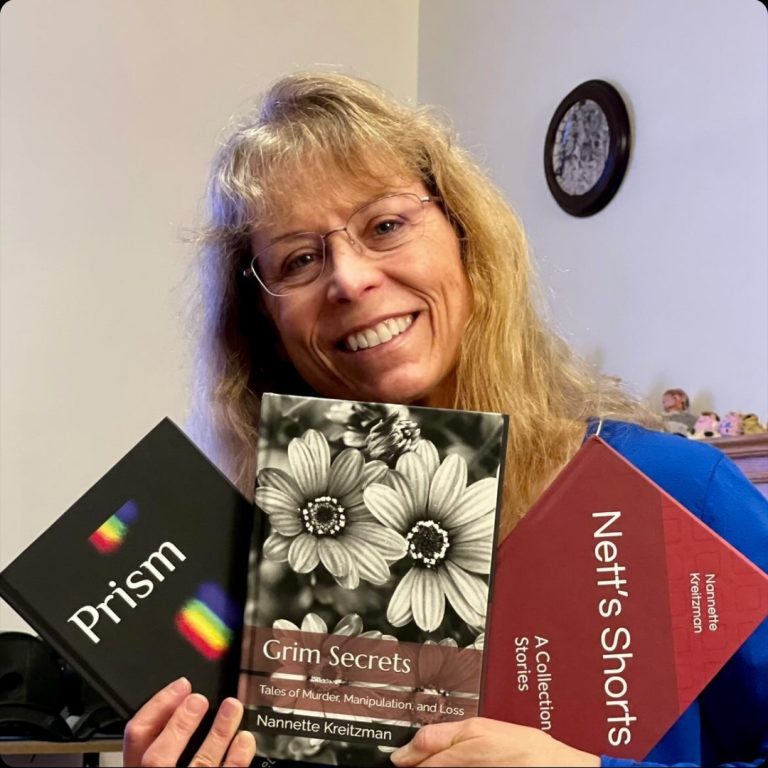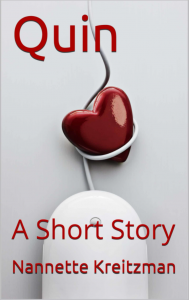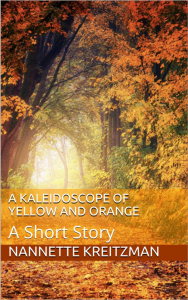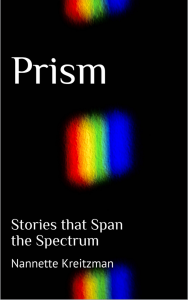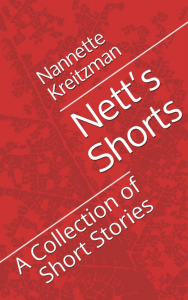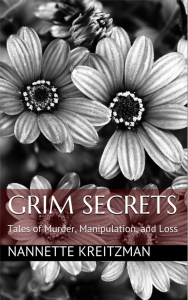Zuu’s Intervuus
with Fellow Authors
In support of indie authors everywhere!
An Interview With…
Our interview this month features LBGTQ+ writer, blogger, runner, cook and actualizer of dreams, Marcus Lopés – all the way from Toronto, Canada. I follow Marcus online, and sometimes, when I find myself losing track in my writing, I seek out his posts to get me back in line. I find Marcus’ posts very encouraging. Because whenever and whatever Marcus shares with his readers, you can bet it’s motivating.
And he’s recently won 2nd place in Something or Other Publishing‘s (soopllc) 2nd Annual Short Story Contest in the LBGTQ+ category, for his story Stay with Me. Congratulations, Marcus! To learn more about (and from) Marcus, please read on…
Welcome, Marcus! As a short-story writer (primarily), I enjoyed your two short stories The Visit and The App, and I’m very curious as to how the short form and the long form compare for you. Which do you prefer and why?
What I love about short form fiction is the challenge of trying to tell an engaging story, and bring to life relatable characters, with so many fewer roles compared to a novel. It forces me to really think about what the theme of the story is and what it is that I want to convey. Or, another way I look at it is by asking questions like: What has to be left out of the story? Will the story still stand up without it? Will the ending provoke the reader?
With long form fiction, I love the opportunity to go deep with the characters, to understand their motives, to build up to that moment when they finally really see who they are. And it’s for that reason that I do prefer long form fiction. It gives the reader the chance to understand the character—especially in the beginning if they’re not exactly likeable—so they can understand where they were, where they are, and where they hope to go.
Your Writing Process
We chatted about Morning Pages some time ago, and seeing as we’re both hooked on them in our morning routine, could you describe your average writing day for us, starting with your morning ritual and what the Morning Pages mean for you?
I begin every day with my Morning Pages, a journalling practice I began after reading Julia Cameron’s The Artist’s Way in the late 1990s. After journalling, I read (something inspiring) for twenty to thirty minutes and then move onto my current work-in-progress. What the writing looks like at that point depends on where I am in the writing process. If I’m writing a first draft, it means rereading a few paragraphs from where I left off so I can continue writing. Other times it means I’m editing. My writing day, or more aptly my writing time, currently occurs between 3:00 am and 6:00 am, before I start to get ready for my day job.
I’ve been writing Morning Pages since the late 1990s. It’s a practice of three pages of longhand, stream of consciousness writing that is completed first thing in the morning. The number of pages I do varies depending on the journal I’m using at the time, but it is integral to my morning routine because it grounds me. In my Morning Pages, I can ‘shrug’ off whatever is bothering me so that it doesn’t cling to me throughout the day. It helps me get perspective on life when I’m stressed, when I’m doubting myself, when I’m not sure if the decisions I’ve made were the right ones. The biggest advantage for me with Morning Pages is that they help to quell the chatter in my head. Most of the time, anyway.
How has your writing process adapted over the years?
First, I’m a morning person, so I always told myself that I was a morning writer. And for the most part, that’s true. I do my best work in the morning, and that is the only time I proofread or edit. Between 2013 and 2020, I worked as a flight attendant. That upended my circadian rhythm, and forced me to learn to write at any time of the day.
Second, I’m a panster. When I have a story idea, I just sit down at my desk and write. I used to write first drafts of novels longhand. While that is still true of short stories, first drafts of my long-form fiction are typed on my laptop. And now usually by the second draft, I take the time to outline the story and characters, which makes it easier to find plot holes and inconsistencies in character development.
The Creative Grey Matter
What has writing taught you as a person? If so, how has it improved your life?
Writing has taught me about resilience. If you want to write, and you want the world to read what you’ve written, you have to be resilient. This was a difficult lesson to learn when I first started submitting my writing for publication only to receive rejection letter after rejection letter. Because I almost gave up. But I kept trying, and eventually rejection became acceptance. And that taught me to always try, to push beyond my limits in all areas of my life. And that was how, in 2019, I succeeded at running my first full marathon.
What’s your way of getting over writer’s block?
Here’s how I get over writer’s block. I don’t believe in writer’s block. I think it’s a myth, something invented to stop us from creating, from pursuing our dreams. We say we’re waiting on inspiration to start, but we could be waiting a long time.
‘Inspiration’ comes the moment I sit down and touch my pen to the page, or as my fingers dance across the keyboard.
Not writing, or not feeling inspired to write, isn’t writer’s block. It’s fear. You’re afraid to begin, afraid that what you write isn’t good enough, afraid that you’re not good enough.
Just write. That very act sets off a chain reaction. Just don’t get caught up in how good you think the writing is or isn’t. That’s what the rewriting process is for.
Your Writing Business
Regarding genre, do you write for the market, or just follow your heart?
I write the stories that haven’t been told, from the perspective that I can relate to, with characters in whom I can recognize a bit of myself. In this, I follow Toni Morrison’s advice: “If there’s a book that you want to read, but it hasn’t been written yet, then you must write it.”
What’s your overall writing goal, why?
To tell engaging stories that explore the intricacies of human relationships—challenging the assumptions we have of each other and ourselves—that captivate readers around the world.
Inspiration
Where do your story ideas come from?
I’m an avid people watcher. My stories come from snippets of conversations from the people I see on the bus, at the grocery store, or walking down the street. Sometimes they come from reading or watching a movie and wondering, What would happen if the story was told this way? Or if this character was like that?
What do you like about the short form?
In short form fiction, I like the challenge of telling a story succinctly, and creating engaging characters that resonate. Often, the shorter works lay the foundation for a longer piece of writing to which more depth can be added to the story and characters.
Life in General
What are your hobbies, Marcus?
I love to bake. It’s something I’ve been doing since I was a kid, inspired by both of my grandmothers. Croissants, bread, lemon meringue pie, and oatmeal-raisin cookies are a few of my favourite things to bake.
How often do you get to go running? Which works best for you?
Currently, I run two to three times a week. And I try to walk home from work regularly, depending on the weather (it’s an eight-kilometre trek). Running is the one activity that allows me to clear my mind and really be present in the moment.
The Fun Part
What’s your favourite writing ritual?
It’s writing in the early morning hours when the rest of the world is sleeping, when the streets are more or less empty, when I am alone in the world.
How has writing fulfilled your life?
Writing has given me a sense of purpose, that I am doing what I am called to do. When my world is upside-down, writing helps me make sense of it. Writing is a way (for me as an introvert) of connecting to a world I often feel at odds with. It keeps me grounded.
Miscellaneous
Is there anything else that you’d specifically like to address here, that is important for you or that you’d like your readers to know?
My writing isn’t for everyone. If you’re looking for that perfect ending, the Hollywood-esque happily every after, my stories will disappoint. I tend to veer closer to happy-for-now, and an ending may not give the ‘closure’ some readers need.
What’s the most important thing you’ve learnt in your writing career (it needn’t be writing related)?
Don’t wait. In life, we’re always waiting for the perfect moment, the perfect opportunity that we believe will allow us to pursue a dream or goal. I hear people say, “When I retire…” or “Once I get a new job…” or “When I’ve saved ‘X’ amount…” The problem is that when we wait, we’re kind of tempting fate. We hope that when all those perfects align, we’ll take the plunge and do the thing that calls to us. But, sometimes, life has other plans for us.
So, don’t wait. Whatever you need to do, or feel compelled to do, do it now.
A Message for Writers Starting Out
Can you tell us what your message is for writers starting out today, Marcus?
Write. Write. And write some more. Read. Read. And read some more. And whether you’re thinking about self-publishing or want to go the way of traditional publishing, have your manuscript professionally proofread and edited. They are key to your success.
Thank you for chatting with us today, Marcus. If you, the reader, enjoy LGBT stories, Marcus has been kind enough to provide us with an excerpt from his story Broken Man Broke. Click here for a taste of his well-rated story! Enjoy: Broken Man Broke
February, 2023
An Interview With…
Our interview this month features fellow short-story writer, and wonderful human being, Barbara Daniels Dena – all the way from the US. Barbara is an angel within the writer’s community. She has proved to be an inspiration not only for me on my writerly path – she definitely deserves the limelight today! Barbara is author of the debut collection of short stories For the Soul (which I am currently enjoying) and has a second collection coming out in December/January. If you enjoy “…an eclectic and extraordinary collection of short stories… [with] imagination, a dash of real life, inspiration, and lots of love” you will love her upcoming collection, One Soul’s Journey. Without further ado, let’s meet Barbara!
Welcome, Barbara! First and foremost, I’d like to ask the questions I’m most curious about: What is it about short stories that lures you? And can you tell us a bit about your second collection of short stories, One Soul’s Journey?
For me, writing a short story is easier than it would be to write a whole novel. My mind doesn’t work that way. I couldn’t imagine writing enough scenes, details, and conversations to fill an entire book. In writing a short story it is as Aristotle said, “A story is a beginning, middle, end.” Simplicity at its best.
This second collection of short stories has more imagination and fiction than my first, with lots of twists in those stories. Like my first collection, I added some true life tales, both funny and shocking. This time, I delved into a few of my thoughts and belief systems, such as justice and bullying. One Soul’s Journey is written in the same style as my first collection, For the Soul.
It is my hope to do a free promotion on Kindle for the first collection of For the Soul for those who are interested at the same time that we drop One Soul’s Journey.
Your Writing Process
Can you describe your average writing day for us, Barbara?
I write or edit first thing in the morning for at least two to four hours. Then I check in with social media and my reviews. The evening I spend reading, always. There is no variation on that. No matter where I am I read in the evenings. I gain inspiration from reading other authors’ works. There may be an idea that pops into my head or a specific word that fits exactly into a story I am writing.
Do you write each story as a stand-alone, or are your stories linked somehow?
Each story in my collections is a stand-alone.
About how long does it take you to write a short story from start to finish (excl. research)?
A short story usually will take about two hours to write depending on the subject matter. My short stories are not lengthy.
Which part of the writing process do you love, or hate, most?
I adore the imagination part of the writing process. Developing a story out of a ‘what if’ is so much fun to me. I often spend more time laughing than writing thinking about how the story would play out in real life. I write for myself and if a reader enjoys it, so much the better.
Of all the craft guidelines online, which works best for you?
I use Grammarly basic for the first run through of my stories and ProWritingAid for my final edit. I do not count solely on these as I often overrule their suggestions. I then do another pass through reading without software aids.
What do you feel you need to focus on to improve your writing even more?
I would like to branch out to read new genres that I have not written in the past. I would like to write about fairies in upcoming stories. They intrigue me.
What do you intentionally avoid in your writing?
I intentionally avoid writing certain words in my writing. Any form of the word ‘get’ as ‘get’ has no meaning. I try to always substitute an action verb in that case. The words very, just, suddenly, some and their variations, are words I try to avoid as well.
The Creative Grey Matter
What from your youth plays a major role in your writing today?
Many of my stories revolve around my youth. Many are included in my anthologies but do not take precedence.
What would you say is your most important attribute that’s reflected in your work?
Without a doubt, my sense of humor.
Is there anything not craft-related that you strongly recommend to writers starting off today, which you did not know back then?
Have an outside interest, a hobby, friends who are not interested in writing. It will help clear the mind and give inspiration.
What’s your coping mechanism when your other tasks prevent you from writing?
I knit or paint.
How important is empathy for you?
Empathy is a building block in many of my stories. It is a vital part of my writing.
Your Writing Business
What’s the most effective marketing method for you?
I have a marketing manager, Catherine Lyon, of Lyon Literary Services and Marketing and I call her my marketing guru. She has been in the business for years and knows all the right places where my book works. She is the best thing I ever did to start off my writing career in the real world.
Regarding genre, do you write for the market, or just follow your heart?
I absolutely follow my heart. If readers like my writing, that is a plus. I write for me first and what makes me happy.
What’s the best thing you ever did that helped your writing business?
I joined social media and met the most wonderful people there. One young lady took me under her wing and helped me to start out by showing me the ropes. I would not have made it without Ivy Logan.
What’s your advice on how to manage bad reviews?
Ignore them. It is one person’s opinion. A writer’s words are golden only to the writer. There is always someone who wants to dim the sunshine, so I don’t bother with their viewpoint.
How do you celebrate good reviews?
I do a happy dance! I am quite a sight to see, hopping around.
Inspiration
Where do your story ideas come from?
Normally my ideas come from my imagination. My mind is constantly in a whirl with ‘what if’ scenarios. Often I will write a short story from an incident in my past which was particularly funny or that made an impact on me.
Who or what inspires you personally in your writing?
Humor, children, animals
Which genres or topics do you not like, and why?
I am not a fan of erotica. I don’t like to be reading a good mystery when unexpected sexual conduct enters the storyline. I skip over those passages. I want to read the story that the blurb indicated about the book.
Do you prefer reading books by indies, or mainstream authors?
I read both. I borrow mainstream authors from my library. I make it a solid habit to buy and support indie authors from my social media accounts. They are supportive of me, and I always want to return the favor and make sure I leave uplifting reviews.
What did you want to become when you were younger (or still want to)?
I always wanted to be a teacher and a writer. My formal training was as a Home Economics Teacher. I found classroom teaching was not my forte. Administration and school rules were so stringent that I lost the joy. I still was able to teach by being a volunteer from outside the school system and volunteering my time to classes as a lecturer. I also taught floral design in adult education. As far as writing is concerned, I read every day since I was a child and I dreamed of being the next Danielle Steele when I was a later age reader. Now, I love the art of short story writing. I have such praise for those who write complete novels. I do not have that patience.
Are your characters inspired by people you’ve met, or not?
Oh, yes. I am a people watcher and find interesting details in people I watch. My new book has stories which use friends and family as fictional characters. I may be in big trouble, but it is all in good fun. I hope they like how I portray them.
What are your plans for your next collection/series?
My next book One Soul’s Journey hopefully will be out by December 2022 and following will be another book in the Soul Series in 2023
Which book left the biggest mark on you?
Death Be Not Proud by John Gunther written in 1949. I read it when I was 16. It is memoir written by a father about his son who dies of a brain tumor at age 17.
Life in General
Who all supports you in your writing ventures?
My family and close friends. I would write without their blessing, but it is more fun knowing they are always there for me.
What else is important for you, besides writing?
Charity work.
“Let not thy left hand know what thy right hand doeth.” Matthew 6:3 I am not one to quote the Bible to others, but I happen to like this particular verse. More people need to do this and not brag.
What was your job before you started writing?
I have had so many career paths. Even though I had formal training to become a teacher, I ended up owning an employment agency hiring temps, then I was a florist, and have been a recruiter for a medical transcription company. I have even set ceramic tile on construction sites. I Beta read and did lots of line editing later after those fun jobs. I bore easily so like a new challenge from time to time.
The Fun Part
Do you have any ‘co-writer’ pets?
Yes, I have a tiny Yorkie named Zoe. She believes she is the writer in the family, and I am but the transcriptionist.
Miscellaneous
What’s the most important thing you’ve learnt in your writing career?
Writing takes courage.
A Message for Writers Starting Out
What’s your message for writers starting out today, Barbara?
Do not doubt yourself. If the desire to write is there, write. Watch people. Continually play out the ‘what if’ scenarios in your mind. Read always read. You must be versed in your genre and expand to other genres to know what style of writing will be good for you. It is imperative to take writing courses. Have critique partners, hand write something every day, even if it is recalling nursery rhymes. It keeps the muscles of the brain and hand muscles working. (Even though you work on a computer, it is good to handwrite as well.) Determine if you are a plotter (outline a story) or a pantser (write by the seat of your pants). Find competent Beta readers. Editing is vital to any author’s work. Do not have family or friends critique your work. They will love anything you write because they love you.
“Wonderful heartwarming stories” (Amazon 5-star review)
“Beautiful slices of life.” (Amazon 5-star review)
Thank you for chatting with us today, Barbara. And we wish you all the best with your next launch – looking forward to reading it!
Here’s a short complimentary story for you, from Barbara. Enjoy! The Tie that Binds – by Barbara Daniels Dena
If you would like to catch up more with Barbara, you can do so here: WEB *AMAZON *FACEBOOK * TWITTER
December, 2022
An Interview With…
IAN SUTHERLAND
Today, we have the honour of chatting with South African author of historical fiction and short stories, and businessman, Ian Sutherland. Thank you for taking the time from your very busy schedule to join us, Ian! Following his first novel, Subversion (previously Featherstream), Ian is launching his next novel entitled Catastrophe, on November 9th. So if you’re a fan of the historical thriller-memoir genre, definitely keep up to date with his launch here! Also, Ian has a free short story for you to download (at bottom of interview), if you’d like a good story to keep you company. I can definitely recommend it. But now, without further ado, let’s take a peek at a South African author’s writing life…
Your Writing Process
Can you describe your average writing day for us, Ian?
I’ve had to adapt to an ever-shifting external environment that comes with the territory of having day business and being a father. Coffee shops or closed doors tend to feature in the process.
Are there any themes you tend to write more about? Which?
For me themes tend to develop subconsciously during the drafting process. So far there have been no discernable patterns.
Which part of the writing process do you love, or hate, most?
I love it all, even, as I discovered to my surprise when I had to, talking about my stories at launches and interviews.
What do you feel you need to focus on to improve your writing even more?
Make time for intentional reading of good books
What do you intentionally avoid in your writing?
Saying more than necessary and pretention.
What do you do when you hit a slump in your writing?
I finish my allotted time to write and go out and try to live a little.
Have you tried writing all genres, or do you focus only on one or two? Why do you write in the genre/s you do?
My short stories span the gamut, but my novels have been historical thrillers. I love history and enthralling stories.
The Creative Grey Matter
Are you an introvert, extrovert, or both?
On the introverted side of the spectrum.
What has writing taught you as a person? How has it improved your life? And how did it change you?
It has helped me discover my true self and make sense of the world. It forced me out of my shell.
Do you prefer writing about safe, or more controversial subjects?
I write whatever grabs me by the throat.
Is there anything not craft-related that you strongly recommend to writers starting off today, which you did not know back then?
Choose an understanding life partner.
What’s your coping mechanism when your other tasks prevent you from writing?
If ‘no’ or an intimidating glare doesn’t work then I climb into my car, close the doors and scream.
What’s your way of getting over writer’s block?
With the arrogance of someone lucky enough to so far not seriously suffer from this affliction, I would venture the opinion that research is an effective way to clear the pipes.
Do you have an interesting ritual when you write?
For my latest novel Catastrophe, which has Russian characters and is set in the USSR (present day Ukraine) I would do an online Russian language lesson before writing – to get into the mind of my protagonist.
Your Writing Business
What’s the most effective marketing method for you?
Word of mouth.
Regarding genre, do you write for the market, or just follow your heart?
I believe writing from your heart will ultimately be best for the market.
What’s your overall writing goal, why?
To write and share the best stories I am capable of.
How many WIPs do you have going at once?
I’m one-track-minded.
What’s the best thing you ever did that helped your writing business?
I found the courage to share my stories with other human beings.
Inspiration
Where do your story ideas come from?
Living curiously.
Which books or authors have changed your perspective on something?
Tolstoy, in War and Peace, made me to question how much individuals play in the course of history versus forces more generally.
Which book left the biggest mark on you?
The bible
Do you prefer reading books by indies, or mainstream authors?
Any book that comes with a recommendation from someone whose opinion I respect.
Which indie writers inspire you the most, and why?
Zuzanne Belec (seriously) for her obvious passion for the craft and determination
What are your plans for your next book?
I’m toying with a few ideas but will probably only pursue them once my novel Catastrophe is launched.
What’s the most important thing you’ve learnt in your writing career, Ian? It needn’t be writing related.
How much you can endure of a thing if you love it.
Life in General
How many languages do you speak, Ian, and which is your mother tongue?
English is my home language. I speak Afrikaans and German, with basic Russian and a smattering of isiXhosa, French and Italian.
Do you have a day job? If so, what do you do?
I am a financial director of an engineering consultancy and investor in a travel business.
How many books do you read a month?
Right now, I’m too embarrassed to answer that question. Not nearly enough!
What are your hobbies, or interests (what did you study at school)?
History, travel, water sports and nature, to name a few.
The Fun Part
Do you travel for your research?
Yes, a great deal both locally and abroad: it’s hard to get a good sense of place without having been there!
Do you go on writing, or other, retreats?
I’m yet to discover the joys of collaborative writing experiences
How often do you get to watch TV or movies?
Seldom TV and too seldom movies
A Message for Writers Starting Out
What’s your message for writers starting out today, Ian?
If you love it, write, rewrite and share (initially with someone you trust). Then repeat ad infinitum. And don’t listen to the naysayers.
.
“A compelling read, with a wonderful sense of place and a cracking pace.’’ (Love Books)
“This is an intriguing, well-researched historical novel that sheds some light on life in South Africa during the war years. This book could appeal to fans of Barbara Mutch’s The Girl from Simon’s Bay.” (Wordsworth)
Thank you, Ian, for chatting with us today. Oh, before I forget, here’s Ian’s complimentary short story for you: https://www.iansutherland.co.za/#toggle-form
If you would like to catch up more with Ian, you can do so here: WEB *AMAZON *FACEBOOK * INSTAGRAM
November, 2022
An Interview With…
Jonathan C. Lewis
Enjoy travelling the world from the comfort of your armchair? Love taking in little cultural wisdoms, or having a good laugh? Then I definitely recommend reading the microfiction travelogues of Jonathan C. Lewis, who is our special guest today. In our chat below, we will learn more about Jonathan–enchanting writer, artist and social justice advocate…
Your Writing Process
Before we learn more about your creative writing below, I’m very curious as to how you got to creating box art. Yes, we can read more about it on your website, but could you briefly tell us here how you were drawn to this art form?
Oh my, that is a story that it goes back 40 years. My wife and I were visiting the Chicago Institute of Art and I fell in love with the art boxes by Joseph Cornell. Subsequently, for 40 years, every time my wife and I found ourselves stranded at an airport or stuck elsewhere, and after we had depleted every other possible topic of conversation, I would bring up how much I liked Cornell boxes. When Covid hit, she suggested I try my hand at it. And, I am still am.
The art form itself appeals to me because it is converting every-day, discarded objects into something of human value. Plus, it is a much more tactile art than writing so the contrast works well for me.
Thank you, you sure got me curious about this art form! To come back to your writing now though: about how long does it take you to write a short story from start to finish (excl. research)?
From first word to posting a 500-word microfiction posted on my website, approximately a month. I usually churn out 1000 to 2000 words on a first, fast draft in a day or so, then start the editing and revising. Most of my stories have been revised 15 to 20 times. Some get redone almost entirely, saving just the basic locale and title.
What do you feel you need to focus on to improve your writing even more?
Sufficient character and plot development in a 500-word microfiction which also must include a fair amount of site description is challenging for me. I love travel so my first drafts skew towards declaratory travel-writing, but travel journalism alone doesn’t tell the rich, dynamic story of a traveler.
The Creative Grey Matter
What has writing taught you, Jonathan?
To be more patient. To slow down and observe. To enjoy the details of travel, of life.
Do you prefer writing about safe, or more controversial topics?
This question is perplexing because one person’s safe topic is another person’s controversy. I steer away from topics where my life experience — or inexperience — makes it likely I will screw up. Travel is a metaphor for learning about different cultures, peoples and inevitably controversies, but I am still learning how to do that well.
Your Writing Business
What’s your overall writing goal, and why?
To learn about myself, understand the world a bit better, share my lens with the reader. That sounds more exalted that I intend it. If am having fun writing a story and the reader is stimulated to visit a new place, or travel in a new way, or re-map a part of themselves, I’ll take it.
How many WIPs do you have going at once, Jonathan?
Twenty, at least. When I lock on to a locale for a short story, I start that part of the story within minutes but I may not return to it for months.
What’s your advice on how to manage bad reviews?
Banana cream pie is a proven anti-depressant.
I will definitely be trying that out! And how do you celebrate your good reviews, Jonathan?
For any occasion or none at all, I like the mass-produced, yummy banana cream pies from a Northern California 1950s fast food chain. Before you judge, I am compelled to add that bananas are high in potassium which I am told is good for you.
Inspiration
What is it that you like about the short form?
I’m not sure “like” is the word I would have chosen, but I do appreciate — and need — the discipline of writing concisely. Sticking to the short form is like a word prison that forces me to think long and hard on what’s most important, chose each word more carefully, cut out tangents and so on.
Like myself, you are a late bloomer; so what is it that inspired you to write at this stage in life?
I started fiction writing at age 72, about 1.5 years ago. Prior to writing fiction, my entire professional career depended on writing nonfiction memos, books, articles, whatever. I was kickstarted into writing when a close friend who enjoyed my private post-travel notes suggested I should take up travel writing. That sounded serious and heavy — and hard. Instead, I foolishly thought writing short stories or microfiction travelogues would be easier. The transition from nonfiction to fiction has not been remotely easy, but I love escaping into my character’s journey so here I am late in life working at becoming a better writer.
Is there still something else, another creative or other activity, that you’d like to jump into one day?
At 74, I think I might be too old for ballet. And, bungee jumping is out because I don’t like falling down. So, I guess the answer is No. Nothing else on the horizon.
Life in General
I’m curious to know, Jonathan: how do you balance regular life and writing.
I’m retired professionally so I have the luxury of not respecting the distinction. Writing is fun so I don’t sense a tension with the rest of my life. To the extent I am called to handle the more mundane responsibilities of life, I enjoy them too, but in a different way. Hugging a grandkid is one satisfaction; writing is another; taking out the garbage is a third. Often I have an art box or two (https://www.jonathanclewis.com/) under development and multiple stories tumbling around in my head all at the same time. Beats boredom.
How often do you get some exercise? Which works best for you?
I hate exercising but it is one of life’s necessities, like bowel movements and snoring. I hit the treadmill 5-6 days a week and hate every minute of it. Ideally, I work out in the morning, but usually I put it off until the last minute of the day.
What was your job before you started writing?
My career has been checkered. What that implies about me, I fear to know. My first job after college was senior legislative aide at the California State Senate. I started a number of businesses (some successful, some not), played a leading role in starting two social enterprises to fight global poverty (MCE Social Capital and Copia Global), wrote a book on social entrepreneurship, founded an art gallery, worked in the health industry. I like variety which is why I guess travel is so appealing to me.
The Fun Part
Do you travel for your research? Tell us more!
At heart, my travel stories use a make-believe journey to ask questions about the world and its people so all my story ideas are plotted out from, well, from traveling. The locales for my stories are a walk down memory lane of trips taken. I look at old guidebooks, family travel photos, watch TV travel shows, movies filmed on location, cooking shows, just about anything that refreshes my memory of a place.
How often do you get to watch TV or movies?
Civic engagement is at the core of my world view, so I am a political news junkie. And I love movies. All of it is grist for my short stories. When I am not actually putting words on paper, I am constantly collecting experiences, either directly or vicariously, to write about. Whatever fills me up fills up my pages.
A Message for Writers Starting Out
Do you have a message, Jonathan, for authors starting out today?
Write your ass off. The secret sauce is knowing that the creative process requires quantity. By that I mean, every artist – regardless of modality – produces tons of work, much of it quite average (maybe even never sees the light of day), and then a subset of fantastic work. Just write. Nothing else matters.
“Thoughtful, Insightful and Provocative” (Amazon review of The Unfinished Entrepreneur – R.Cordes)
You can catch up with Jonathan here:
Email – jonathan@jonathanclewis.com
Twitter – @NoahOffCourse
Art Box Sculptures – art from recycled materials
Off Course, Of Course – microfiction travelogues
The Unfinished Social Entrepreneur – social change book
Sept, 2022
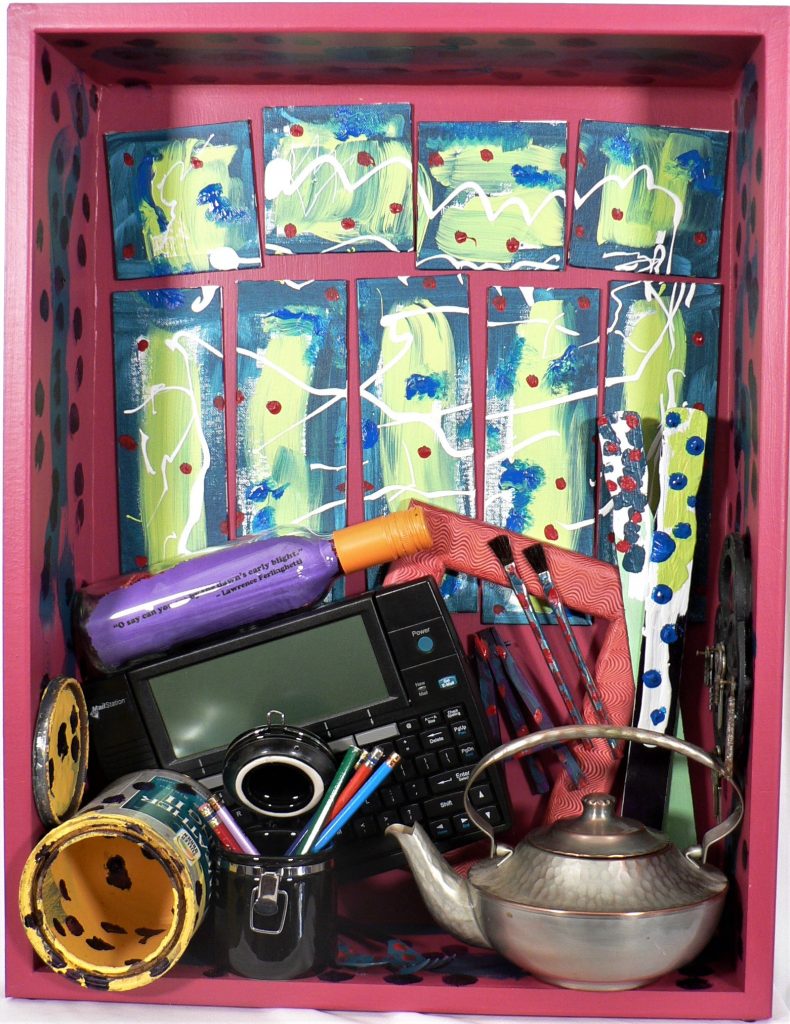
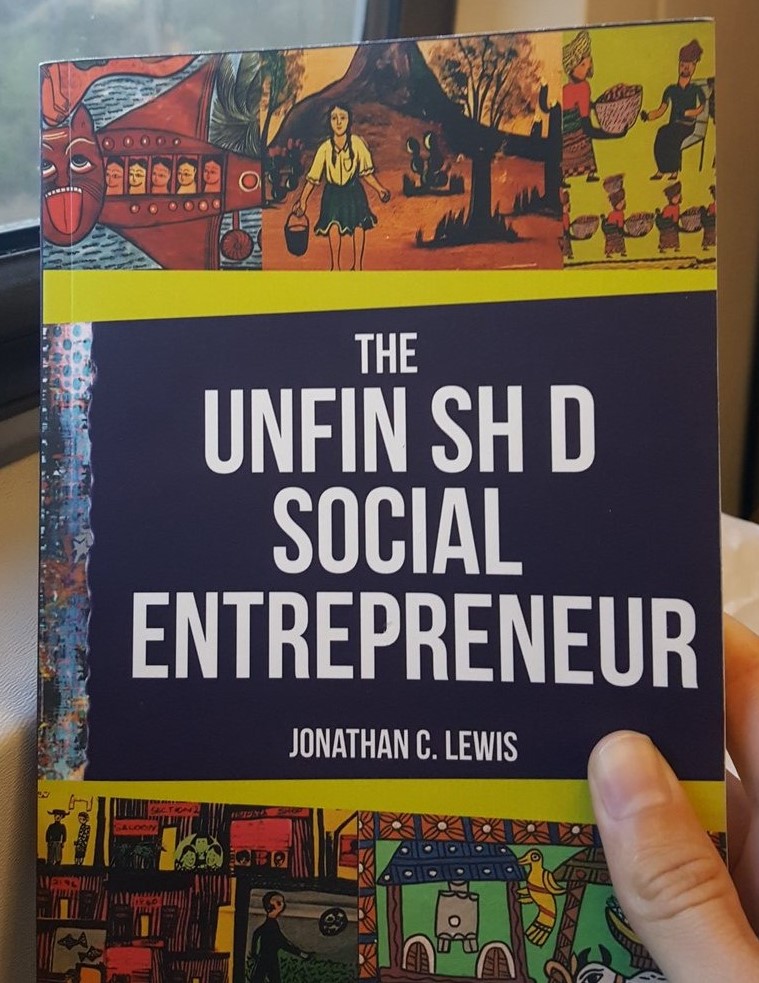
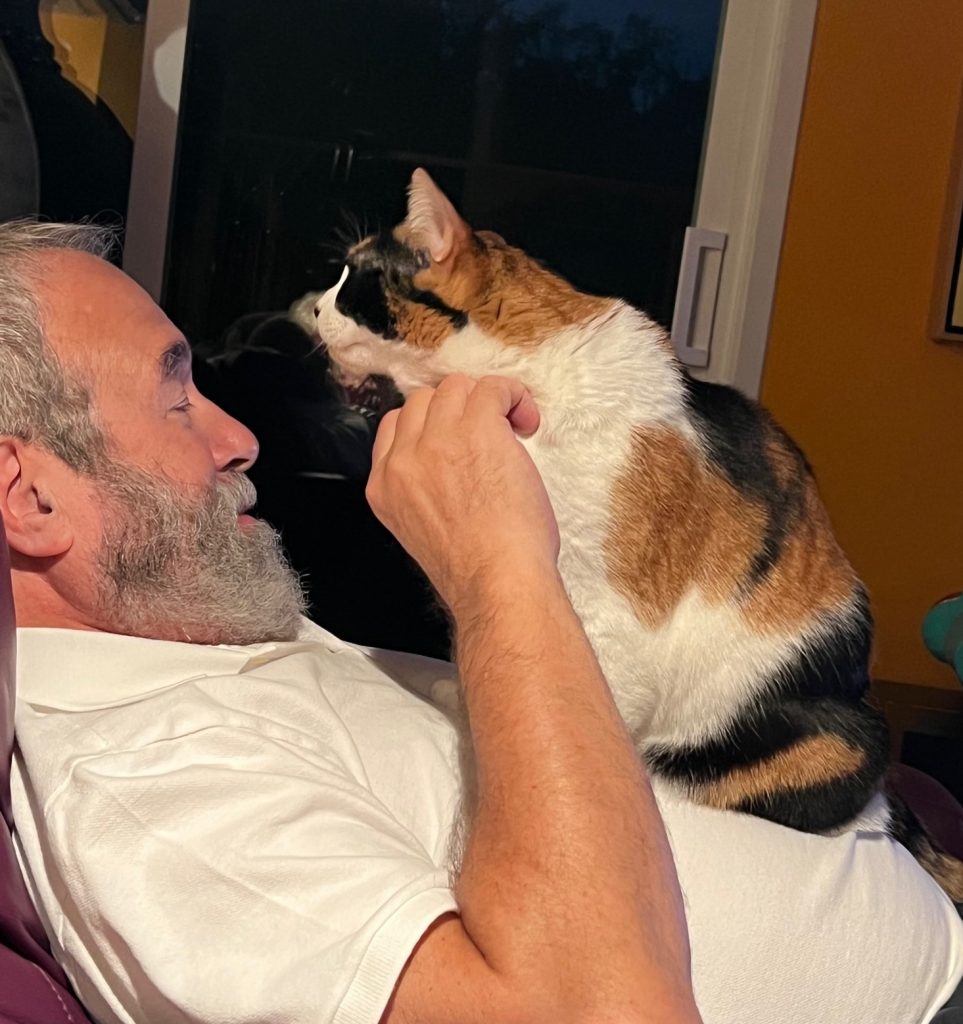


An Interview With…
A. WOODLEY
Today, we’re chatting with prolific author, A. Woodley, all the way in the UK. Ann is author of crime, fantasy, and children’s books, as well as poetry. Thank you for joining us, Ann. Now let’s go and see how Ann went about writing all those books!
Your Writing Process
Do you write each book (or story for a collection) as a stand-alone, Ann, or are your stories linked somehow?
Every story began as a stand-alone throughout the writing stage.
I wrote one short story and a children’s book, about a million years ago, (that may be a slight exaggeration), at a time when I was mostly writing poetry and working on the first Tarot book. There was no self-publishing then, and I had no interest in querying, so I did nothing with them. Later, the one story became 20, as I found my writing mojo once more. These 20 make up Murder Melange.
After completing that book, I wrote more short stories, 3 were published, (each as a single book), but were later unpublished and republished together as Trio.
My 3 other short stories make up Life Returns. (Reincarnation fiction).
Witch Spelling (YA novella), was my first attempt at writing something longer than a short story, which then prompted me to try a novel. I needed to know if I could do it. Restless Spectres was the result of that experiment.
My second novel was a complete surprise to me, I had no intention of writing it. On waking one morning, I fully remembered a complete scene of a dream. (I rarely remember dreams, and if I do, it’s fragmented bits that make no logical sense if viewed together). I immediately wrote the first chapter of Serial Stalker, before even making a coffee. I had to get it down before I forgot it.
I’m now writing a series of children’s books, but each one can stand alone. (The first wasn’t planned as part of a series, but then the next ones insisted on being written). These are not labelled as a series, and they’re not numbered. If somebody just wants to own one or two, it won’t look as though they’re missing parts of a series on the bookshelf. Only the characters link them.
What do you do when you hit a slump in your writing?
I recently went away for 10 days and I think I left my writing mojo behind.
It’s been a while since I added anything significant to my 2 WIPS. I’ve made the cover of one and added some pages, but I can’t seem to get back into the flow of writing every day. I’m totally ok with this though. I’m gardening, getting out and about, and I’ve done some decorating. If I don’t complete these 2 books until later in the year, there’s no harm done.
Have you tried writing all genres, Ann, or do you focus only on one or two?
Throughout my life, I’ve never been good at sticking to one thing. I need variety. I’ve created many craft objects, and tried my hand at many things, none of which I ever wanted to continue or try again, once that phase came to a natural end. I think that may explain why I’ve written across several genres. Been there, done that, try something new.
The Creative Grey Matter
Do you prefer writing about safe, or more controversial subjects?
I think I prefer safe. I don’t know why, it just seems to have panned out that way. Of course, so many of my stories involve murder, so not very safe for a lot of the characters, but not controversial.
Do you need external stimuli when you’re writing, or complete isolation?
I can write with noise going on in the background, either music playing, or the general noise of the public if I’m writing outside. I mostly write in silence though, at home, on my computer.
Do you have an interesting ritual when you write?
No, as long as I have a coffee or soft drink nearby, I just get on with it. The closest I can think of, would be editing and proofreading each chapter before going onto the next. (There are obviously many more full edits and proofing after completion, until I’m sick of reading it).
Your Writing Business
Do you use a pseudonym, and if so, why?
I don’t use my full name, but it is my real name for the majority of my work. I have 2 books under a pseudonym.
I wanted to try other styles of poetry, including free verse, acrostic, haiku, narrative and quatrains. I had the idea of writing 99 poems for each book and pricing them at 99p/99c. A penny a poem gave me the inspiration to call myself Andee Penny. (See what I did there? My name is Ann D, not saying what the D is for). 🙂
Regarding genre, do you write for the market, or just follow your heart?
I’d never write to the market. An idea hits me and I either just see it through, or write what the characters put into my head and out of my fingers. As a pantser, it does feel as though I have no say in what I write. This is a good thing, as I take no responsibility for what goes onto the page. Not my fault officer. 🙂
What’s your advice on how to manage bad reviews? And how do you celebrate good reviews?
I had a bad review that I’m thankful for. I took into account the points raised and learnt from that. My writing has improved because of that one review.
It’s not perfect, some say I tell, rather than show, but I know that some readers prefer that. I won’t be changing my style. I know you can never please everyone, and I’m ok with that. I’m a no-nonsense Virgo and I think that comes across in my ‘just get on with the story’ approach. It’s not intentional, it’s just the way I write.
I’m always so happy when I get a good review, but I don’t actually do anything to celebrate. Maybe I should.
Inspiration
Where do your story ideas come from?
Mostly, I have absolutely no idea. One came from a dream, (mentioned elsewhere), but that aside, I honestly don’t know.
Do you prefer reading books by indies, or mainstream authors?
My daughter bought me an eReader many years ago, every book I read then was traditionally published.
After publishing several of my own books, and then finding my tribe on Twitter (in that order), every book I’ve read in the last 5 years has been found there. I like that I can support my fellow Indies. Of course that means that my TBR on my Kindle Cloud Reader is ginormous. I wonder if I have enough years left to get through them. I promise myself, no more until I get through some of these. You can probably guess how that goes.
What did you want to become when you were younger (or still want to)?
I’ve never had any ambition to become anything. I still don’t. Becoming an author was never planned, it all stemmed from some poems I wrote after a failed relationship in the ’80s.
What are your plans for your next book/collection/series?
My only future writing plans are for more titles in the Six Mini Monsters series. Maybe an idea outside of that may present itself in the future, but nothing else has hit me so far.
Life in General
How many languages do you speak?
I only speak English fluently, but I do have a fascination for languages. I know some Czech, some Dutch, some Spanish and a smaller amount of French, Latin, and German. I couldn’t hold a conversation in any of those though.
Do you have a day job, Ann? If so, what do you do?
No, I’m retired now. I’ve had many jobs, none of which lasted for more than a year. I was a registered childminder for 10 years, but the kids came and went. As each one grew and went off to school, more would take their place, so that gave me the variety I needed. It didn’t feel like the same job.
What else is important for you, besides writing?
My family are just the best. I’m so fortunate in that regard. I love to travel, I’ve missed it so much these last couple of years (through lockdowns). I’m looking forward to heading to the sky again for my next adventure.
The Fun Part
Do you travel for your research?
I don’t travel for research, I travel because I enjoy it so much. A couple of the places I’ve been to are mentioned in Blocked (from Trio) – a fictional tale about getting over writer’s block.
Do you go on writing, or other, retreats?
No. I don’t think I’d get much writing done. I love to explore whenever I go somewhere new. I’ll either wander around the town, taking in the sights, seeing where each road leads, or I’ll hop on a bus or tram and see where that goes. I’ll often stay on until the end of the route, keeping an eye out on the way for places to get off and explore on the way back.
How has writing fulfilled your life?
I think it came back into my life when I needed it the most. Life is never plain-sailing for too long, problems and hard times do crop up now and again. I’d hit a bad spell and discovered self-publishing within that time. It gave me something to focus on every day. Now, I have trouble believing it was me who wrote so many books. How on earth did that happen?
Yes, with all those books your write, how often do you get to watch TV or movies?
Every evening. I need my dose of Netflix every night.
Other Goodies
Is there anything else that you’d specifically like to address here, that is important for you or that you’d like your readers to know?
When I discovered self-publishing at the age of 62, (quite by chance), I dug out the old works and found I had over 100 poems (mostly rhyming narrative), I chose which ones I wanted to publish, put them into two books of 50 poems, and studied the process to publish.
Everything I’ve written since, stemmed from that one discovery, as though I was meant to find it at that time.
It’s never too late to begin the process. If you feel you want to write, give it a try, you might surprise yourself.
What’s the most important thing you’ve learnt in your writing career (it needn’t be writing related)?
Probably that I should have attended school more when I was supposed to. I may have had better punctuation knowledge then, and saved myself from that bad review. 🙂
I had some truly great times ‘hopping the wag’ (truanting) though, so it all turned out fine.
A Message for Writers Starting Out
What’s your message for writers starting out today?
There is a lot of advice out there, some good, some I don’t agree with, but the most important thing to remember is, that it’s just advice. It may only be someone’s opinion. Don’t take every bit of advice as a rule, (even if some call it a rule).
You’ll see things such as… show don’t tell. Keep your words to this amount of words for this genre. (Plus more I can’t think of right now). The bottom line is, you will never please every reader, no matter how you write, and that’s ok. It’s great that we don’t all like the same things.
My advice would be… Write it how you want, it’s your book. You’ll want it to be the best it can be, regarding spelling, grammar, formatting, proofreading etc, but the writing style is your choice.
To finish up, I’d like to say…
Good luck with your works if you’re writing, I hope it fulfils you.
If anybody does read anything of mine, I hope you like it.
If you don’t like it, that’s ok, I wouldn’t be hurt or offended.
I’ve read books that I couldn’t get into. Maybe others loved them, they just weren’t for me. It’s just a matter of taste.
All the best, Ann.
“Great bedtime/travel reading ….highly recommend.” (Karrie V – Amazon review)
Catch up more with Ann here: *AMAZON AUTHOR PG *TWITTER *FACEBOOK
July, 2022
An Interview With…
SIMON VAN DER VELDE
Today, we have the honour of chatting with award-winning author, Simon van der Velde, all the way from the UK. You may know Simon’s unique collection of stories, Backstories – it’s doing great in the charts! And now: he has just launched his new crime thriller, The Silent Brother! Let’s take a peek at this successful author’s writing life and his books…
Your Writing Process
Can you describe your average writing day to us, Simon?
Once the kids are safely off to school, there’s nothing better than to sit down with inspiration buzzing round my head, and begin. Of course if there’s no inspiration it’s a lot less fun, but I begin anyway. I might have to spend some time on research, or I write a page or two that goes in the bin. That’s just the price I pay. But I know, if I dig through the dirt for long enough, eventually, I’ll come up with the treasure.
What writing process works best for you?
Taking my time, relaxing, and enjoying it.
I definitely need time and space. I have trouble writing when I try to rush, or when I get distracted by social media and marketing. The key for me is to remember why I’m doing this – for the peace and purity of thought – and then get back to basics. Who is my character? What do they want? What’s in their way? And what’s happening, step by step, blow by blow, – see it, and write it down.
Which Part of the process do you love / hate?
A blank page is a challenge, and sometimes it’s hard to face. The key, of course, is to begin, and to remember, I can write anything. It doesn’t matter how bad the first draft is. Conversely, when it’s going well, there’s nothing like the first draft – so pure and exciting and unexpected.
Editing can feel like a chore, but again, when I’m on a roll it can really be fun, being surprised by what I find waiting for me on the page, and inspired to add to it.
Your Writing Business
Many writers see this differently. What’s your view of the writing biz, Simon?
The whole idea of the writing business is a bit of a turn-off. This is definitely not what I’m in it for. Then again, I understand that it has to be done, and there are some upsides.
The best thing I ever did marketing-wise, was to get into Twitter. Twitter may be a nasty place in the wider world, but I have found Book-Twitter to almost entirely benign, full of kind, supportive and intelligent people. Dare I say, that’s the difference between readers and non-readers? Once you’ve travelled a million pages and seen, (and felt), the world through the eyes of a thousand protagonists, is it really any surprise if us readers have developed some perspective?
I should also add that Twitter has not been helpful to my writing, sucking up too many hours and too much headspace.
Overall, Twitter is a Little like single malt whisky. I can’t recommend it highly enough, but you do need to keep it under control, and recognise when you’ve got a problem.
Inspiration
Can you tell us what inspires your work, Simon?
My inspiration comes largely from my life, but I do pinch the odd idea from other artists.
For example, when The Silent Brother was first conceived I was watching a lot of Thomas The Tank-engine with my kids. This, if you don’t know, involves Thomas travelling around with his two carriages, Annie and Clara. Entirely subconsciously, I then wrote a book with three central characters called Thomas, Annie and Clara. Strange stuff.
More seriously, the inspiration for The Silent Brother came out of my time working in underprivileged communities in the east end of Newcastle. As I say in the marketing material, it could all be pretty dispiriting. Hard as we tried to make things better, there was always someone, plenty of someones, ready to tear it down. Drug and alcohol abuse was everywhere – as was anger and frustration, vented in seemingly pointless, and often vicious violence.
What I came to understand was that this was the direct result of the collapse of the ship-building and mining industries in the eighties.
These days, when a major employer closes down special teams are brought into the area to help with retraining, and attract new employers. But in Thatcher’s Britain, when the unions, heavy industry and even the north itself was the enemy – closing down the mines and the decline of the shipyards was an end in itself. A victory. Something like the victory in Iraq, with no plan beyond winning the ‘war’.
The effect on these communities was devastating. Generations of skilled workers lost their jobs. More than that, they lost their identity and their union, and often their families. How could they teach their children the meaning of a hard day’s work for a fair day’s pay? – in this new world of every man for himself. And why would their children listen to these old mens’ stories? – when both father and children were signing on at the same dole office.
Abandoned and useless, these once proud men faded away. Worse still, their children grew up without hope or direction. The old order was gone, and there was nothing to replace it and nothing to do, except anaesthetize yourself from day to day, until the hopelessness got too much – and erupted into violence. Ambition meant getting a few quid together, enough to score a deal to get you through the emptiness, until next week’s giro. Dignity and community were replaced by crime and booze and drugs.
We’re on the third generation now. For them, the glory days are something the history teacher drones on about. It has nothing to do with their lives.
In a community with so little hope, overstretched social services and policing priorities elsewhere, it’s easy for the gangsters to take over.
This is the world our hero, Tommy grows up in, and the inspiration for The Silent Brother. My aim, I guess, is to highlight the link between victim and perpetrator, and show you that often, they are one and the same.
In writing this book, I asked myself – if I had grown up in this world, what, if I was brave enough, might I have done to survive?
The Silent Brother is my answer.
Conversely, my inspiration for Backstories came from another place entirely. Backstories began with an urge to understand my heroes, to cut through the shiny, public image bullshit and get to something more meaningful – and maybe get back in touch with how it felt to be seventeen.
The real trigger though, was going to see a musician from way back when. The truth is I was a bit concerned. Would he still be any good? Or just a bit sad? I mean the guy was well into his seventies.
In fact, he was utterly and completely brilliant. Great voice, great music and above all, great honesty. That gig was my inspiration for Backstories.
So the next day put aside my novel and wrote a little piece about this guy’s life. That might’ve been that, but my wife, Nikki loved it. I told her there was no market for short-stories, but of course, as happens far too often in our house, she was right and I was wrong.
Two years later, I’m delighted to say that Backstories has won multiple awards and Backstories II is due out in the autumn.
The Fun Part
Where can we find you when you are not writing/reading, Simon?
I’m often out walking, (and thinking), with Barney the dog. Or I’m out with the children, (rarely thinking), but maybe driving them to tennis or swimming or singing or art… (A little lockdown silver-lining was that I spent a lot less time in the car and a lot more actually with the family.) And very occasionally, when all the work is done, I get to spend a little time alone with my wife, Nikki.
At what point did you decide to be an author / publish books?
I’ve always found the real world a bit dull and stressful, which meant I spent a lot of time living in my head. It took me till my early 20’s though, to get my act together enough to put anything on paper. I wrote a story about a boy wizard having a tough time at school, until it turned out he had the true power. The twist is, this was back in about ’92, before Harry Potter was even written, though my book did owe a little to Diana Wynne Jones’ Charmed Life, (as does J.K.Rowling’s).
Writers Just Starting Out
What’s your message for writers starting out today, Ian?
Never give up. Keep writing and believe in yourself. If all you seek is money and fame from your writing, you are going to be disappointed. Instead, find your own voice, tell stories your own way, entertain, engage, and above all, enjoy what you do.
If you have a passion for the written word, sharing it is the best gift you can give. You won’t change the world, but if you make a difference to one person’s life, it’s all worth it.
“Original and compelling… had me reading well into the night.” (Awais Kahn)
If you would like to catch up more with Simon, you can do so here: WEB *AMAZON AUTHOR PG *GOODREADS * TWITTER
June, 2022
An Interview With…
A big welcome goes to Patty Wiseman – the first author from Texas (that I’m aware of) I’ve had the honor of chatting with! Patty is a speaker, and author of ten award-winning fiction titles, including a children’s story, non-fiction, as well as an enjoyable flash fiction piece called ‘Hidden Treasure’. Besides being a busy author, Patty is also an ace bowler, by the way ;o)
Your Writing Process
Patty, can you describe your average writing day for us?
I have breakfast with my husband (we are both retired), I head for my office, he heads to his shop. I write from about nine until noon. We have lunch together, then back to our respective endeavors! I try to keep a regular schedule like this because it really makes me more productive. We quit about four in the afternoon for together time.
Do you write each book as a stand-alone, or are your stories linked somehow?
I have ten books published. This includes a series of five books. The remainder of my books are not linked to the series of five. The series is based loosely on my grandmother’s life brushing elbows with the mob during the Roaring Twenties. I wanted to do other things, so I have two contemporary romantic suspense, a ghost story set in the 1800’s, a children’s book, & a motivational book.
About how long does it take you to write your book/collection/or short story from start to finish (excl. research)?
My 1st book took me seven years to write. I was working a full-time job and trying to learn the process of writing. After that it went a bit faster. It takes me a full year to write and polish each book.
Have you tried writing all genres, or do you focus only on one or two?
I focused on historical fiction in the beginning but have branched out into contemporary fiction. I have two contemporary out now. I also have a ghost story set in the 1800’s. Children’s books were never my forte, but my dog provided me with a great story of rescue, so I wrote a children’s book! Another topic I branched out with is a self-motivational book.
The Creative Grey Matter
Are you an introvert, extrovert, or both?
I’m an extrovert. They say writers are mostly introverts, but I love people and try to surround myself with other writers as much as possible.
Is there anything you swear by now that you avoided/refused when you started writing?
An outline was not in my vocabulary when I wrote my 1st book. I thought they were tedious and unnecessary, but now I use a loose outline. The end goal for me is particularly important, so now I do swear by outlines, ever so loosely, but it really helps me stay on track.
Do you need external stimuli when you’re writing, or complete isolation?
I like to have upbeat music playing in the background. I often have my headphones on, so I can listen privately to my favorite music.
Your Writing Business
Regarding genre, do you write for the market, or just follow your heart?
I do NOT write for the market. I love a uniquely told story and I have many of those rattling around in my head. I’m not in it for the money. Writing is truly my passion and I want to do it well.
What’s your overall writing goal, and why?
For me, I want the writing to be good. I improve with each book and learn something new from my characters and the story. My goal is to leave a legacy for my family. I want them to know life is what you make it and to follow your passion no matter what it is.
How many WIPs do you have going at once?
I find I can have two WIP’s going at once, but if I do more than that, I tend to get off track. I spoke earlier about outlines. What works best for me is to have Character Rosters for each of my books. I can go back as I introduce each character if necessary to remember hair color, eye color, personality, etc. It saves time overall.
What’s your advice on how to manage bad reviews?
Ignore them. There’s always someone out there who doesn’t like your writing. And of course, there are the trolls that live to write bad reviews. Focus on the good ones. Many times, I forget to look at reviews. I have a wonderful following and focus on that. Twelve years into this writing thing and I have learned for my own mental well-being to ignore the negative.
How do you celebrate good reviews?
When I run across a good review (I don’t go looking for them) I share them on all my social media sites. In that way, you encourage new readers to give your books a shot!
Inspiration
Where do your story ideas come from?
In the beginning the stories came from my grandmother. She used to tell us of her escapades during the Roaring Twenties. Well, she didn’t tell me because I was only five and hiding under the stairs so I could hear her tell the adults. She was a wonderful storyteller and they stayed with me all my life. That was the focus of my 1st book. I meant for it to be a stand-alone but it ended up being a five-book series. Writing really opened up for me after that and I felt confidant enough to explore other genres.
Which books or authors have changed your perspective on something?
There are so many authors that changed my perspective in writing. The one that comes to mind is Diana Gabaldon who wrote The Outlander series. Some may like her, some may not, but what kept my interest and helped change the way I wrote personally was her descriptive writing ability. The characters jumped off the page. You pictured them in your mind.
Are your characters inspired by people you’ve met, or not?
Yes, all of my characters are based on either my family or friends. Loosely I might add, but inspired, never-the-less, on people I know. As I said above, my grandmother was the 1st one to inspire me. For writers fleshing out their characters I recommend that they look at people known to them for inspiration, mannerisms, speech, looks, all of that. It helps put realism in your writing.
What are your plans for your next book/collection/series?
Well, I don’t know if it’ll be a series or not. Could be… I’ve challenged myself again. I am writing a fantasy! Totally out of my comfort zone. It’s about an evil mermaid. Time travel might also be involved. I do rely on my critique group to keep me on track. They give me invaluable insight, so I stay true to the genre.
Life in General
How do you balance regular life and writing?
I really don’t have a problem with that. I’m retired, so I can write all day long if necessary. The freedom to write every day is a blessing and I am thankful for it every day. My husband is very respectful about my writing and leaves me alone while he works on his projects. The best part is, we take my books and his metal art on the road together to festivals and other events. So doing that together is a real blessing.
Who all supports you in your writing ventures?
I have a very supportive family, a wonderful writing community which includes our local writers association, my critique group, and the many fans and followers I have acquired over the years.
What are your hobbies, or interests (what did you study at school)?
I am an avid bowler and have been doing that for forty years. I love my bowling team of ladies. At 73 I still carry a 145 average. I actually studied music in school, voice mostly, but I didn’t do anything with that. I sang in our church choir, trios, quartets, etc.
What was your job before you started writing?
I worked for a financial planner for twenty-five years. Before that I was a wedding planner and worked for different florists. But my passion was always writing.
The Fun Part
Do you go on writing, or other, retreats?
I’ve been on several writing retreats. They are a lot of fun. It’s always special to meet like-minded people who share the passion of writing. You always learn something new about the writing process or the marketing process, too. Retreats are a great tool for new writers especially. I’ve made life-long friends at these retreats.
How has writing fulfilled your life?
I was the kid with a flashlight under the covers at night reading any book I could get my hands on. The passion for reading turned into writing books myself, although it took me until I retired to actually fulfill that desire. It’s been a blessing to fill my days telling stories and developing characters to launch into the world. Retirement is the best reward for a life well-lived and writing has given me all I’d hoped for.
Other Goodies
Is there anything else that you’d specifically like to address here, that is important for you or that you’d like your readers to know?
You can learn the craft even though you didn’t study writing specifically in school. There are so many online courses. Learn how to stay true to your own voice. Yes, follow the rules as much as you can, but remember your voice is unique, so embrace it!
Writers Just Starting Out
What’s your message for writers starting out today, Patty?
Find a good critique group. This in invaluable especially when you are starting out. But beware of those groups who tend to tear you down. Find a group that fits what you need. I am a member of a writing association in my area and their help is what propelled me into the writing world. Find Beta readers that are not writers so you can get clear feedback from a reader’s perspective, as well. Reach out, participate, and most importantly write!!
"It will lift your spirits and encourage you to press on when your path grows dim and discouraging. Great job, author Patty Wiseman. " - (5-star review of Silver’s Redemption, on Amazon)
If you would like to catch up more with Patty, check her out here:
** Facebook: https://www.facebook.com/PattyWisemanAuthor
** Twitter: https://twitter.com/PattyWG
** Instagram: https://www.instagram.com/pattywg/
** LinkedIn: https://www.linkedin.com/in/patty-wiseman-30ab5b40/
** MeWe: https://mewe.com/i/pattywiseman
** Amazon: https://www.amazon.com/Patty-Wiseman/e/B005OTXOE6
** Patty’s Musings Podcast: https://www.facebook.com/PattyWisemanPodcast
June, 2022
An Interview With…
A big welcome goes to Ian Steventon, author of several novels, novellas and short stories. I’m glad to have met Ian on Twitter. Because, besides me enjoying his short stories, Ian has made me realize many things about life, creativity, gratitude, passion, family and health. He is an inspiration to me, and many others too, I’m sure. Ian suffers from debilitating illnesses, but still manages to make the most of what he can, while sharing his wonderful stories with his readers. And Ian is also a painter!
Your Writing Process
Can you describe your average writing day to us, Ian?
My health always dictates it, but on a good day I try to spend at least an hour on my writing before anyone else is up in the morning, and then I will add to that throughout the day if I get the chance. Because of arthritis, I find typing slow and painful. I now use voice recognition software for most of my work. Once I got used to it, I found that telling the story came more naturally, and my dialogue improved!! Although I still love to keep notes and physically write in notebooks, just not so often.
About how long does it take you to write your book/short story from start to finish (excluding research)?
Most of my books are novellas, which are between 30,000 to 40,000 words. I would say from first draft to editing and completion takes between 4 to 5 months on average. I’m not a fast writer, but I try to average around 700 words a day on a first draft.
Which part of the writing process do you love, or hate most?
Strangely enough, I love editing and rewriting. It really is a form of sculpting, and watching a fully formed story emerge from that chaotic first draft is so rewarding to see.
I don’t truly hate any part of the process, but plotting is the most laborious part for me. I’m not a pantser, I like to know where my story is going. I do like to have a roadmap to follow, so I take my time to allow the story to develop from the kernel of an idea to something fully formed. Saying that, I always leave enough room for my characters to grow and tell me where they are going. They always surprise me somehow.
Of all the craft guidelines online, which works best for you (and which not)?
The best crafting advice I ever read was “Save the Cat Writes a Novel” by Jessica Brody. I found her beat sheet online and fell in love. I always start with her beat sheet template. It offers a perfect roadmap for the story, and they set it up as a series of prompts so the story unfolds organically, and if you follow the beat sheet, the story is also well structured, which means less rewriting. It is my story Bible and prompt sheet.
What do you feel you need to focus on to improve your writing even more?
I think I need to focus more on my descriptive writing. I love dialogue and it always seems to come naturally, but describing things, not so. I think I tend to avoid going into too much detail on describing a character’s appearance. I’m not good at it. I prefer to let the reader form their own impression.
Have you tried writing all genres, or do you only focus on one or two? Why?
I have written urban fantasy, horror, murder mystery, and romance, so quite an eclectic mix. I am now focusing on a new murder mystery series, and contemplating writing more romance. I originally wanted to focus on urban fantasy and horror, but subconsciously my writing always veered more towards humour and had a lighter tone. So I have decided to go with it and not fight it, and I surprised myself by how much I enjoy this new approach, and also the writing feels as if it flows more easily.
Your Writing Business
Do you use a pseudonym, Ian? Why?
I wrote my romance book under the name Faye Stevens, because it was so different from everything else I had written up to that point. I wanted to give that book, and a possible series, its own identity.
Do you write for the market, or just follow your heart?
I always write for myself, and yes, follow my heart. I think if I attempted to write for the market, it wouldn’t come over as genuine. I am and always will be an intuitive writer, even though I have an outline for each of my books, I always let the characters and situations speak to me and trust where they take me. It doesn’t always work out, but my writing is usually more spontaneous and I like to think better for it.
What’s your overall writing goal, why? And how many WIPs do you have going at once?
I just want to tell stories, explore my characters’ emotions and motivations. I love to experience the creative journey, it is rewarding in itself.
I usually only work on one book at a time, but I am always having ideas for things, and constantly make notes (most of which never see the light of day).
What’s the best thing you ever did that helped your writing business?
I don’t really see it as a business, it’s more of a hobby to me. But saying that, the best thing I ever did to help my writing, was to buy Scrivener, which really helps me organising and writing my books. Also Dragon Naturally Speaking dictation software; as someone who suffers with arthritis it has been invaluable.
What’s your advice on how to manage bad reviews?
Ignoring them would be my best advice. It is impossible to please everyone, and it is often more a reflection on them than on you. What I know is, there are many stories of authors who have engaged with bad reviewers, and it can end badly, and destroy or damage your reputation. See my first comment.
Inspiration
Where do your story ideas come from? And what inspires you personally in your writing?
My stories come from all around me. Watching the news, reading books and papers, and having conversations with family and friends. I’m inspired by anything about overcoming obstacles, and the perseverance and tenacity of the human spirit. Inspiration is like a sponge and it soaks up everything. Because my health has suffered significantly, these are the things that resonate most with me.
Which genres, topics or themes do you enjoy, and why?
I mainly enjoy reading crime and thrillers. I like the form of escapism they give me. I also enjoy books on the craft of writing. As for a theme I tend to write about: I like to think we all have good inside of us. I believe in the human spirit, in empathy for others. Much of my writing explores the best and the worst of those traits.
Which book left the biggest mark on you? And which author left the biggest mark on you?
The book The Prophet by Kahlil Gibran, every word spoke to me. As for the author who left the biggest mark on me, it’s Andre Gide. I first read “Fruits of the Earth” when I was a teenager, and its poetic imagery has never left me.
Do you prefer reading books by indies, or mainstream authors? And if indies, which indie writer inspired you the most, and why?
I most definitely prefer indies. As for inspiration: I’m not sure he’s indie, but Neil Gaiman. His writing style is unique, and his imagination is limitless, weird, and full of compassion and empathy, all of which I love.
When did you start writing, why?
I was approaching my 50th birthday when I became seriously ill. Everything changed when I was left with a life altering disability. It forced me to re-evaluate what really mattered to me. I had always harboured a desire to write but never acted on it, so I vowed to myself that I would write a book and publish it before I turned 51. I have written a book a year ever since then.
What did you want to become when you were younger (or still want to)?
From a very young age, I wanted to be an artist or writer. I was always drawn to what our imagination is capable of, and the desire to create was very strong.
I’m certainly not rich or famous, but I turned my disability into an opportunity, and even though I only consider them as hobbies, I can now spend my good days painting and writing.
What are your plans for your next book/collection/series?
I am currently plotting a new murder mystery series. It’s set in the 1970s in my home village of High Ercall in rural Shropshire, England. The series will be called “The Beryl Braines Mysteries,” I named the main character after my late mother, and although the books will be in no way autobiographical, it will be a gentle nod to my memories of growing up in that time.
The Creative Grey Matter
Are you an introvert/extrovert, or both? And do you need external stimuli when you’re writing, or complete isolation?
Definitely an introvert. I prefer to work in silence, and if possible when I am the only one in the house. Early mornings are my best friend when I am working on a first draft.
What has writing taught you as a person, and how has it improved your life?
I have become more introspective, and I have become more patient. It has given me back a sense of purpose, and allowed my imagination to expand beyond my wildest dreams. I have also learned that small regular steps towards your goal, whatever it may be, over time can produce significant results. It made me slow down and take stock of my life, to see what is important to me. It continues to help me navigate the bad days. Also, I like to paint, it often unlocks my creative side, it’s a counterbalance to my writing, and it complements it.
Do you prefer writing about safe, or more controversial subjects?
I will write wherever the subject takes me, I would never shy away from anything controversial, but I would pause and consider its worth, and if it genuinely adds to the story, or just sensationalises it.
How important is empathy for you?
Empathy is everything to me, it’s what binds us together as human beings, it’s also the cornerstone to most of my writing.
Life in General
How do you balance regular life and writing?
As someone with health issues it can sometimes be difficult, I always just do the best that I can.
How many books do you read a month?
On average, probably two or three, I’m a slow reader.
How hooked are you on writing (and/or reading}?
Completely, reading and writing saved me from a very dark place in my life.
The Fun Part
How often do you get to watch TV or movies?
I try to avoid turning on the TV during the day, and I don’t watch it every night. It can be like a rabbit hole and swallow up your life. I love films, I will always find time for a good film.
Other Goodies
What’s the most important thing you’ve learnt in your writing career (even if not writing-related)?
Have empathy for other people. Life can be a difficult journey for all of us. Never assume you are the only one struggling, seek out like-minded souls and it helps to share the burden for you, and for them.
Writers Just Starting Out
What’s your message for writers starting out today, Ian?
Never give up. Keep writing and believe in yourself. If all you seek is money and fame from your writing, you are going to be disappointed. Instead, find your own voice, tell stories your own way, entertain, engage, and above all, enjoy what you do.
If you have a passion for the written word, sharing it is the best gift you can give. You won’t change the world, but if you make a difference to one person’s life, it’s all worth it.
…a great short read with likable characters and a fantastic story line” (5-star review on Goodreads)
If you would like to catch up more with Ian, you can do so here: WEBSITE ** FACEBOOK ** AMAZON AUTHOR PAGE ** GOODREADS ** TWITTER
May, 2022
An Interview With…
Our special guest today is scriptwriter, editorial consultant and author of many novels and short stories, Maryann Miller! I very much enjoyed Maryann’s short story collection: Beyond the Crack in the Sidewalk, and I am excited about being able to chat with her about her work. The time that Maryann has made for us is much appreciated, and I am more than convinced that you will find our chat with her very enlightening, indeed! Please read on…
Your Writing Process
I am very curious about how you see short stories compared to the long form, i.e. what do both forms mean for you? Are there any insights you’d like to share, regarding your use of these forms?
That is a most interesting question and one I had to think about quite a bit to finally realize that my initial challenge to answering it is that I see no great difference between short stories or novels or screenplays, except for the way the story plays out on paper or computer screen. Story is what is important to me, and some just naturally fit in the short story medium, while others need more to happen and more time in which to let those things happen.
One thing I’ve learned through the process of writing in both forms for so long, is that I will usually know instinctively if a new story idea will work in a short story, or is it the beginning of a new novel.
What writing process works best for you, Maryann?
When I first started writing I never thought of process. I just wrote stories as they came to me. The short stories often would come in a flash of an inspiration, and then I’d write the whole thing in one sitting. “Maybe Someday”, one of the stories in my collection The Wisdom of Ages came to me that way and only had minor changes during a few rewrites. It’s always a thrill when my muse gifts me like that, and it continues to be the way I write most of my short stories.
Much later, after I started writing novels and met up with other writers, I understood that I’m pretty much of a pantster when it comes to plotting and writing longer fiction. The genesis of the story might present itself in that same kind of flash of an idea, and then I start writing. Most often the leading character, or characters, come with that idea and concept, which makes the whole process work well for me. The characters will help drive the story as much as whatever plot ideas I have.
Which part of the writing process do you love, or hate, most?
Like most other writers, the creative process is the one I love the most, especially that first surge of inspiration when I can’t wait to get to the computer to start writing. It’s always a thrill, too, when the characters present a new idea or direction for the story that I hadn’t considered, and it’s a good one.
What do you intentionally avoid in your writing?
There are a number of things I shy away from in my stories: rape scenes, cruelty toward children, animal cruelty, and extremely graphic violence. The mystery and suspense novels do center on crimes, but I don’t paint the scenes with a lot of gore. That’s the only place in the narrative where I do a bit of “telling” as opposed to “showing.”
While writing I also avoid stereotypes as much as possible. For instance, in the Seasons Mystery Series, I purposely flipped the backgrounds of the two women homicide detectives, giving Angel a middle class, intact Black family, and Sarah having the kind of difficult, impoverished background most associated with Black families.
Have you tried writing all genres, or do you focus only on one or two?
It’s funny as I’ve never thought about picking a genre, especially when I first started writing. I just had stories I wanted to tell. My short stories are definitely mostly mainstream, with only a couple of exceptions, and the novels just fell into the genre classification after they were in process. Play It Again, Sam, the first romance I wrote was just a story based on an experience that a friend had and shared with me. I hadn’t set out to find a story to fit in that genre, it just did. The same was true for the genesis of One Small Victory, my first suspense novel. That story was inspired by a newspaper article I read about a mother of five kids bullying her way onto a drug task force in a small town in Michigan and busting a drug ring. The classification of genre came from the first publisher who actually labeled it romantic suspense.
The Business of Writing
Regarding genre, do you write for the market, or just follow your heart?
Writing for the market has never worked for me. A long time ago I had an agent who encouraged me to write romance, since that was easier to market at the time than mystery or short story collections. I tried. I really did. The agent sent guidelines from Harlequin, and I kept them on top of my desk for weeks, reading them over often. And I set out to write a story. I created a heroine and a hero. I outlined a possible storyline. I created a supporting cast. I did all the things the guidelines said to do, but the result was flat and uninspiring. Much later, after I wrote my first romance novel, I realized the difference. The central character came to me. I didn’t have to create her. This was Play It Again, Sam based on my friend’s experience. It was real. It all had substance. It had “legs”.
How many WIPs do you have going at once?
It used to be that I only worked on one writing project at a time, although I would fit in editing for clients in the morning and work on a new story in the afternoon. Now, however, I have one novel, one nonfiction book, my memoir, and a couple of short stories in progress. I am going to have to settle on one to finish in the near future as having so many in limbo unnerves me. LOL
What’s your advice on how to manage bad reviews?
Over the years I’ve learned to ignore review that are not favorable, and now in the era of instant reviewing on Amazon, we have to have even thicker skin. Back in my journalism days when I wrote for newspapers, I was a reviewer. During that time, it was considered a gross breach of etiquette for an author to contact a reviewer to question or rant against a negative comment in a review. But then most review requests were handled by the book editor, not the author, so there was distance between the authors and reviewers.
In regards to reviews of my books that were sent out by the publisher, I seldom saw them unless I happened to see a review in our local newspapers. Sending a handwritten note of thanks to the bookpage editor that would often be shared with the reviewer was always considered a gracious and polite response.
Now, when I see a new review online, I try to thank every person when I can for taking the time to review, even if it wasn’t a positive one. Amazon used to allow us to do that right there as a comment on the review, and I think it was a mistake for them to stop allowing that. Whenever I see a mention on Twitter that someone posted a review of one of my books on Goodreads, I can thank them there, as well as on Twitter.
How do you celebrate good reviews?
It’s always a thrill to see a positive review of one of my books, and I especially like it when a reviewer really “gets” the story or character and points that out. Then I know it is someone who truly understands story.
Inspiration
Is there anything or anyone that has ever put you off writing? If so, what was the outcome?
Funny you should ask. 😊 My college literature professor tried to steer me away from pursuing writing as a career. He gave me poor marks on my papers based solely on the subject matter not the quality of my writing. I liked Steinbeck and Hemmingway and the professor loved James Joyce. I wasn’t, and still am not fond of Joyce. I know he’s considered one of the geniuses of his time when it comes to story and writing, but his style just turned me off. When I told the professor of my desire to be a writer, he shook his head and told me I should take up some other form of creative expression.
Since I’d been writing most of my life up to that point, short stories and essays, I couldn’t stop, but I did give up the dream of being a professional writer. That is until one day several years later, my husband came home from work early and found me scribbling away in a notebook. He read what I’d written, declared it good, and encouraged me to take some creative writing classes. Through all of our years together, my husband continued to be my cheerleader through all the years of rejections and helped me celebrate the publications and awards.
Which book left the biggest mark on you?
When I read Steinbeck’s Of Mice and Men, I cried, and then I read it again several times in a row. His ability to create characters that are so real and so engaging captivated me. In his acceptance speech for the Nobel Prize in Literature, Steinbeck said about writing and living, “Try to understand each other.” Even before I’d read that quote, I knew that understanding people, especially the common man, was a hallmark of his work, and I’ve tried to emulate that in my writing. And his writing is so simple, yet profound. I’m not sure if I’ve reached his level in either way, but I keep trying.
Do you prefer reading books by indies, or traditionally published authors?
When it comes to reading, I have no preference between indies or authors working with a traditional publisher. If they write a good, solid story that has been professionally edited, I’m open to any author’s book. Give me people I can relate to; give me wordage that is above the ordinary; give me a place I can see and feel; and give me an intriguing plot, and I’ll take that ride with you.
What are your plans for your next book/collection/series?
When I finish Brutal Season, the fourth book in the Seasons Mystery Series, I need to decide if that will be the final Seasons book. That’s a hard decision as I love the characters I’m working with, and readers seem to like them a lot, too. Still, I have a couple of story ideas that have come to me recently, one featuring a PI named Memphis. She just showed up one day while I was working on something else, and she’s prodding me to give her a story.
The Creative Grey Matter
Are you an introvert, extrovert, or both?
I’m pretty much of an introvert, which may seem amusing because I also love to play on stage. For some time, I wondered about that contradiction in myself, until I realized that when I’m onstage I’m not Maryann Miller, I’m that person in the play. When I’m giving presentations to library groups and taking part in festivals and writer’s conferences, I adopt a bit of that “playing a role” attitude to come out of the shell we introverts like to hide in. That always makes the presentations more fun than nerve-wracking.
Do you prefer writing about safe, or more controversial subjects?
While I don’t consciously seek out issues about which to write, civil rights has always been a cause that is dear to me, and that has been an ongoing theme in the Seasons Mystery Series. Open Season has a subplot of the use of deadly force by police that is never resolved. I’m not sure that social problem ever can be fixed in fiction. And now, ten years after that first book was released in hardback, the fourth book in the series I’m currently writing is again focused on Black people being killed by police and the rise of the Black Lives Matter movement.
When I started writing “Beyond the Crack in the Sidewalk”, the title story in the collection most recently released by Next Chapter Publishing, I hadn’t planned to make the central character a homeless teen. I was responding to a writing prompt that had just the first few lines: “Beyond the cracked sidewalk, and the telephone pole with layers of flyers in a rainbow of colors, and the patch of dry brown grass there stood a ten-foot-high concrete block wall, caked with dozens of coats of paint. There was a small shrine at the foot of it, with burnt out candles and dead flowers and a few soggy teddy bears. One word of graffiti filled the wall, red letters on a gold background: Rejoice!”
Writers were encouraged to take those first few lines and write a story that could go in any direction inspiration took us. My muse gifted me with a central character, Hannah, and she basically told me her story of how she ended up on the streets and why that shrine meant so much to her.
What would you say is your most important attribute that’s reflected in your work?
One of my gifts is empathy and a sincere interest in people, especially caring about things that complicate their lives. My educational background is in sociology and clinical pastoral education, and that has influenced my writing immensely.
Is there anything not craft-related that you strongly recommend to writers starting off today, which you did not know back then?
Develop a thick skin. I clearly remember the first time I was edited and saw all those red marks in the galleys. I thought, “How dare she (the editor) change my words? It isn’t fair.” After letting me pace and rant for a while, my husband told me to sit down, have a glass of wine. Leave the galleys for a day or so, and remember that editors are there to make a book better, not pull all your fingernails out one by one. That was his way of reminding me that the mark-ups were about the book, not me. And the editor was not some ogre, but actually a very nice young woman. She edited all nine nonfiction books I wrote for the Rosen Publishing Group.
That thick skin is also important if a new writer joins a critique group. Our words are not our darlings, they’re just words. That’s a truism that’s hard to fully embrace because we have to love what we write if we want readers to love to read the stories, but our words are not carved in granite. They can change. I’ve learned to accept constructive critiques and my writing has improved as a result of some good feedback.
Life in General
How hooked are you on writing (and/or reading)?
Hi, I’m Maryann Miller and I’m a readaholic. I think that answers part of the question. 😊 As to the other, a writer friend once told me that writing is not simply what we do, writing is part of who we are. That’s why I never have stopped, from back in college to now.
What else is important for you, besides writing?
My family is the most important thing in my life. Before my wedding, my father took me out for a drink and this is what he told me after taking a small handful of change out of his pocket, “I may not have a lot of money. Or a fancy house. Or an expensive car, but I have you and your brothers and sisters. That’s all I need to be a rich man.” That was so many years ago, but I can still recall it almost word for word.
The Fun Part
Do you have any ‘co-writer’ pets?
My dog Dusty has a bed in my office where he naps while I’m writing. He’s not a lot of help. 😊 There are also two cats who come to wander all over my desk sometimes, especially when they think it’s time to eat. They’ve been known to step on the keyboard and add a run of letters to a sentence – ddddddddddddd. Also, not a lot of help, but I do love my pets. I’ve always had a cat or a dog, and I can’t imagine life without one.
Writers Just Starting Out
What’s your message for writers starting out today, Maryann?
Don’t give up your dream and don’t listen to the nay-sayers. Take classes to learn the craft. We may be born story tellers, but we have to learn the craft, just like a musician or visual artist has to learn theirs. Read. Read. Read. We learn so much by reading other work, even subtly absorbing craft. Finally, if you plan to go Indie, hire professionals to do the editing, formatting, and graphics. We can do a lot of self-editing, but we need someone else to help fine tune the manuscript. Even though I’m a professional editor, I still hire someone else to do that final editing and proofing.
Finally, welcome to the wonderful, wacky world of writing and publishing. You’re in for quite a ride. Enjoy the highs and persevere through the lows.
“Short stories that stir deep emotion” (5-star review on Amazon)
I find Maryann to be a highly inspiring author, and chatting with her opened my eyes to many aspects of writing. I am convinced that you too will come away from this chat feeling motivated and inspired like I was! We wish you all the best on your writing path, Maryann! If you would like to catch up more with Maryann, you can do so here:
WEBSITE ** FACEBOOK ** AMAZON AUTHOR PAGE ** GOODREADS ** BOOKBUB ** ALL AUTHOR ** TWITTER
April, 2022
An Interview With…
We have another special guest on today: not only is he an editor, audio/video producer and a podcaster in support of indie authors (he also co-hosts the Voice of Indie podcast), but also an author of highly recommended short stories and novels! Please welcome Beem Weeks! With all that going on, I’m very glad that he had time to chat with us ;o) Much appreciated, thank you, Beem, and without further ado, here’s a little glimpse into the life of another much admired short story writer…
Your Writing Process
What writing process works best for you, Beem?
I’m an outliner. Nothing intricate. I just lay out the bare bones of the story from start to finish. I add flesh to the bones as I write. I edit my work as I go, so when my editor receives the manuscript, there’s little that needs to be done.
Do you write each book or story for a collection as a stand-alone, or are your stories linked somehow?
My stories are all stand-alone. I’ve never written a series or a sequel, though I have ideas for a follow-up to Jazz Baby that will eventually be written. And though I don’t link my stories together, there are little Easter eggs I’ve dropped in some of my stories that hearken back to Jazz Baby. Just a line or a mention that those who have read the novel will notice.
Are there any themes you tend to write more about? If so, which?
Not necessarily. I do write a lot of coming-of-age stories. We are born, we grow up, we grow old, we die. Along the way, there are experiences (both good and bad) that play key roles in who we become along our journey through this world. I like to capture characters during these various experiences.
About how long does it take you to write your stories from start to finish? (excluding research)
That depends on the story, really. Jazz Baby took the better part of eight years from start to finish. But I walked away from it for over two years. I hadn’t intended to publish it. A short story can take me as little as a day or as long a month to complete. As for collections, my first one, Slivers of Life, contains twenty stories written over four or five years. My second collection, Strange Hwy, contains nineteen stories written over a two-year period.
What do you intentionally avoid in your writing?
I avoid using the word was as much as possible. It’s lazy writing—and it shows, when over-used. I once read a novel where the author used the word was seventeen times in the opening paragraph. I didn’t finish reading that book. Sure, there are places on the page where that word is completely appropriate—even necessary. But I try to keep it at a bare minimum in my stories.
The Business of Writing
How many WIPs do you have going at once?
I am currently working on two novels. One set in 1910, the other in 1977. I also have a few short stories in the early outline stage. I work on whichever one is on my mind at any given time.
What’s your advice on how to manage bad reviews?
Bad reviews, like good reviews, are simply a reader’s opinion. They come with the profession. Even the biggest-selling authors have received bad reviews. Are you writing for the reviews? If so, you’re in the wrong field. Write the stories that interest you as a reader. You’ll find your audience in due time.
Inspiration
Where do your story ideas come from?
Short answer: Everywhere! I can be standing in line at the grocery store where an overheard line from somebody has inspired a story idea. I’m outlining a short story based on an observation I had in church a few years ago. It’s just something that has stayed with me and needs to be written. Inspiration is all around us. We just need to have our eyes and ears open.
Are your characters inspired by people you’ve met, or not?
Many of my characters are inspired by real life individuals I’ve met or known at various points in time. Some are just figments of my own imagination.
The Creative Grey Matter
Do you prefer writing about safe, or more controversial subjects?
I avoid safe at all costs. Safe is boring and does little to grab a reader’s imagination. Many of the best works in literary history have been deemed controversial at times. Those are the ones that stand out. One can write a clean, wholesome novel without being safe. Safe, to me, signifies an author who fears taking chances, fears what others may think. The real world is both dark and light. I try to capture both ends of that spectrum.
The ‘wood for the trees’ adage: do you prefer writing for the big picture, or the details?
Both are vital to telling a complete story. I outline my stories with the big picture in mind. But as I begin to write it, I work all the little details into each scene.
What’s your way of getting over writer’s block?
I can honestly say I’m not one prone to writer’s block. Time and motivation are problems from time to time, but never writer’s block. For those who suffer writer’s block, I would just say, outline your stories. If you’re stuck, you can go to the outline and play around with the stuck point.
Do you need external stimuli when you’re writing, or complete isolation?
I need isolation and silence when I’m writing. I need to focus on and hear the story unfold in my head.
Life in General
How do you balance regular life and writing?
I’ve been writing for so long the two are intertwined. Writing is, to me, regular life.
Do you have a day job? If so, what do you do?
I do have a day job. I work for my publisher, Fresh Ink Group. I am an editor, audiobook producer, and video producer. I also co-host the Voice of Indie podcast.
How often do you get some exercise? Which works best for you?
I have a weight room in my basement. I lift weights, ride the stationary bike, and work the stair climber. I try to get down there at least four times a week. It helps clear my mind.
What else is important for you, besides writing?
My faith in Jesus Christ is the most important aspect to my life today. This brings me clarity and peace when the world is raging. Family and friendships are also very important parts of my life today, where maybe that hasn’t always been the case. Life is about lessons learned and lived.
The Fun Part
Do you travel for research?
I don’t usually travel for my research. My upcoming novel called The Secret Collector is set in 1910 Alabama. I’ve visited Alabama twice during the writing process. Though I learned a few things that may have found their way into the book, I didn’t visit for research. I tend to search online when I need to know certain details.
Do you go on writing (or other) retreats?
I haven’t been on a retreat yet. I do visit with fellow author Stephen Geez—who also happens to be my publisher. We’ve had lunch with author Marlena Smith in Alabama. But that really wasn’t a retreat.
Writers Just Starting Out
What’s your message for writers starting out today, Beem?
Be sure you are putting out your very best work. Pay the extra money for a qualified editor. Outline your stories—even if it’s just the bare bones. Study your craft. Learn from other authors. It’s the sure way to make you and your work shine.
“Short fiction delivers literary wonder.” (5-star review on Amazon)
Thank you for sharing your writing world with us, Beem. We wish you only the best on your writing path! You can find all of Beem’s books on Amazon here, and engage with him on Twitter here. His website is www.beemweeks.com.
April, 2022
An Interview With…
A special welcome goes to my next guest, indie writer of short stories, novellas and novels, Allan Hudson (The South Branch Scribbler). As mentioned before, short stories lie deep in my heart and I am excited to introduce you to another writer whose work I enjoy! Thank you wholeheartedly for taking the time to talk to us, Allan. And without further ado, here’s a special glimpse into the life of a fellow short story indie writer…
Your Writing Process
Can you please describe your average writing day for us, Allan?
I normally follow the same routine each time I want to write. Early mornings with no distractions work best for me. Make some coffee, check messages and write. I always go back over what I wrote previously to get a sense of where to go next.
Do you write each book as a stand-alone, or are your stories linked somehow?
I’ve always enjoyed reading a series and I try to accomplish that with most of my novels or novellas. They can stand alone, of course, but each one leads to another. With my Jo Naylor series, there will only be 5 novellas but with the Drake Alexander series, I don’t see any end to his shenanigans.
What do you intentionally avoid in your writing?
I dislike excessive profanity in stories I read and have made it a point to not overdo cursing in my own stories. Some will argue it is necessary to portray realistic conversations and/or situations, especially amongst criminals but all in all, it adds nothing.
Have you tried writing in all genres, or do you focus on one or two.
My favorite genres are thriller/action adventures and historical fiction. I like to experiment with sci-fi in my short stories but not in my novels. I have no interest in horror or romance as I don’t think I could write effectively in those genres.
Which part of your writing do you love, or hate, the most?
I love the blank page and the fascination of where it will take me and my characters. The potential is what thrills me. The writing process. I dislike rewriting, so edit as I go. Once the first draft is complete, there should be no major rewrites.
The Business of Writing
What’s the most effective marketing method for you?
This is a tough one. I think we all struggle with marketing but my favorite, and most effective in my case, is markets, signings and personal appearances. I use social media as well but it does have its limits. Generous authors who share my work with their readers is great too. Like this.
What’s your overall writing goal and why?
When I began writing, my goal was to get words on paper. I had no idea what would follow. The publishing world is confusing at times but I wanted to share my stories and kept my fingers crossed that some people would like them. My goal is to entertain and I feel I have accomplished it.
How many WIPs do you have going at once?
I usually try to concentrate on one at a time. I dislike leaving a story unfinished by having said that, I do have a short story going the same time I write a novel. The reason I do is that when I get stuck on the novel, the short story gives me a break from it, and vice versa.
What’s your advice on managing bad reviews?
They can sting sometimes, but we always need to keep in mind, our stories will not be for everyone. That is an irrefutable fact. The first one I received made me want to give up writing – it was brutal. But then I looked at all the good reviews and it made me realize it didn’t matter. The few bad reviews I received, I thanked the individuals for their comments and let it slide. Nothing to lose sleep over.
Inspiration
What do you like about the short form?
I’ve always enjoyed short stories. A quick easy read which keeps me captivated is a nice break from longer stories. Plus they are fun to write.
Which book left the biggest mark on you?
Shibumi by Trevanian. It will always be my favorite book. The main character is well developed; the prose is perfect for the genre. The dialogue is strong and believable. The setting is imaginative and interesting. I’ve read it many times.
Which author left the biggest mark on you?
As much as I enjoy Trevanian’s writing, my favorite author is Bryce Courtenay. He writes in the style of Edward Rutherford and James Michener, à la big historical novels. Courtenay’s novels seem to be more personal and emotional. Matthew Flinders Cat is by far my favorite of his stories.
When did you start writing and why?
I’d have to refer you to the previous question and again mention Bryce Courtenay who started writing when he was 55 and it inspired me to sit and write, realizing it is never too late to begin. There was no turning back after I started writing when I was in my late 50s.
Are your characters inspired by people you’ve met, or not?
Many of my characters are imaginative but there are many who are inspired by people I know. One character in my Drake Alexander series is based on a dear friend whose antics have always entertained me, whose friendship I value above all others and I wanted this same relationship in my novels, therefore, Drake and Williston are best friends.
Life in General
How do you balance regular life and writing?
It has been much easier since I retired. Now my mornings are dedicated to writing whereas before, I was only writing on the weekends when I was working. Now I plan my days around my writing schedule. Appointments and errands and visiting take place when the writing is done. MY mornings are my own and I write as often as possible.
Who all supports you in your writing ventures?
I owe a debt of gratitude to my wife. She leaves me to my space and time spent writing. She offers helpful suggestions. She attends all my signings and launches, by my side. I couldn’t ask for better. Plus, I have two close friends who have been supportive from the very beginning, encouraging me, sharing my stories and reading them.
Other Goodies
What’s your message for writers starting out today?
The best advice I received was to try and write every day, at least 15 minutes. Some days the words do not come as easily but if you commit yourself, they will find their way on the page. Equally important is to reach out to other authors. Share their work, join writer’s groups and find the answers to your questions from experienced writers. The publishing world can be very confusing and there are many traps on the internet to be avoided. Other authors have been there and their experience is invaluable.
Thank you for this wonderful opportunity, Zuzanne.
“A great read“ (5-star review on Amazon)
A pleasure indeed! Thank you for sharing with us, Allan (those recommended books too!). We wish you the best on your writing path, and look forward to many more of your stories, for example, in your Shorts – Short Stories from Around the World!
You can find all of Allan’s books (incl. his latest, Fathers) on Amazon here, and engage with Allan (The South Branch Scribbler) on Twitter here, and on FB here.
March, 2022
An Interview With…
A special welcome goes to my VERY first guest, a prolific writer of short stories, Nannette Kreitzman! Short stories lie very deep in my heart and I am excited to introduce you to a writer whom I greatly respect, and look up to for her craft and wonderful personality. Thank you wholeheartedly for taking the time to talk to us, Nannette, and without further ado, here’s a special glimpse into the life of a short story indie writer…
After reading your stories, I just had to ask…
Why do you write short stories, Nannette?
It’s not a conscious choice, it’s just what they end up being. I’d add that my characters are naturally short winded. I’ve always been adept at telling a long story short in conversations, I guess my characters share that trait!
When I read Prism, I was very impressed with your writing skills. Well done indeed. Where did you learn the craft–do you have a background in writing?
I would attribute it mostly to decades of reading wonderful authors, but I also worked closely with attorneys in a property management position years back. They helped me hone my professional writing skills which may play a part.
I know it’s a difficult question to answer, but I just had to ask about that humor and wit in many of your stories! As someone who deeply appreciates wit and humor, I am really curious where yours comes from, and how much of a role does it play in your work and everyday life?
My childhood was challenging. Levity was not something I grew up with, but I definitely learned the value of laughter and humor as part of the healing process. I tend to see humor in dark situations, which isn’t always the best case scenario, but it often serves as an effective coping mechanism at the time. This naturally leaks into my writing, and well placed levity can be a great palate cleanser.
Your Writing Process
What writing process works best for you?
I am not a plotter. The stories I write are those of my characters. There is no way for me to know what happens until they share it with me, and I am often surprised with how they turn out.
Do you write each book (or story for a collection) as a stand-alone, or are your stories linked somehow?
As of now, only two of my stories are connected, Willow’s Tale and Willow’s Secret. I think there may be a sequel to another of my stories brewing, but as of yet my characters haven’t shared enough for me to be sure.
About how long does it take you to write your book/collection/or short story from start to finish (excl. research)?
I’m a very slow writer, often only managing a sentence or two in my one or two hour daily sessions, due to my constant play with words. I have no complaints, however. I truly enjoy it. From start to finish, it usually takes about two months to complete one of my short stories.
Which part of the writing process do you love, or hate, most?
I absolutely love playing with words. I liken it to playing with building blocks, as I put them together only to rearrange them a hundred times before I am satisfied with what I have constructed.
Of all the craft guidelines online, which works best for you (and which not)?
It’s very frowned upon to edit as you write, but I can’t do it any other way. I’m unable to mindlessly spill words onto a page. My stories develop as I’m writing and often change during the process. Not to mention I’m a bit of a perfectionist and can’t move forward until I’m happy with what I have.
Have you tried writing all genres, or do you focus only on one or two?
I have been visited by a very eclectic array of characters. My stories have varied widely throughout the genre spectrum.
The Creative Grey Matter
Are you an introvert, extrovert, or both?
I’ve been called an introverted extrovert. I love spending time with people and socializing, but I do better in smaller groups. I usually need some down time afterward as well.
What from your youth plays a major role in your writing today?
My childhood was a troubling one. I tapped into a lot of emotions during that time, and even more during the healing process afterward. I think this helps me feel, and therefore realistically express, the emotions my characters are facing.
What would you say is your most important attribute that’s reflected in your work?
I don’t shy away from difficult subjects, in real life or in fiction. I’m not afraid to dig in deep, feel all the feels, and explore all the options.
What’s your coping mechanism when your other tasks prevent you from writing?
I will take notes (usually dictating them in my phone) when ideas come up when I’m unable to sit and write. This not only prevents me from forgetting them, but tends to appease my impatient characters.
How important is empathy for you?
I am very empathic, my mood often changing to those of the people around me regardless of how I was feeling beforehand. Although this can be draining, it goes hand in hand with how my childhood experiences have enhanced my writing.
Your Writing Business
If you use a pseudonym, why?
I do not, but I wish I had thought of using one when I first started writing. My name is quite the mouthful and difficult to spell as well. I would have gone with something simple, like Nett Kay.
What’s your overall writing goal, why?
Pleasure. I started writing my stories for the pure love of playing with words and I refuse to lose sight of that.
What’s your advice on how to manage bad reviews?
I have been blessed with favorable reviews, but should I ever receive bad ones, I will try to keep my goal of ‘writing for the love of the craft’ in mind.
Inspiration
Where do your story ideas come from?
From the ether is all I can fathom! Usually it’s while I’m out on a walk. A scene will start playing in my head like a movie, and as the days go by, more scenes join it.
Do you prefer reading books by indies, or mainstream authors?
With the exception of the latest Outlander novel, I have been reading exclusively indies for the past two or three years. I’ve discovered some marvelous authors!
If you’re a late bloomer, what inspired you to write?
I’ve always loved playing with words, but I never had stories to tell. I thought I lacked imagination, but it turns out I always had too much going on in my head. Once my kids grew up and moved out, there was room for my characters to move in.
Life in General
How many books do you read a month?
Reading is essential to writing in my opinion. I average a book a week depending on length.
The Fun Part
How has writing fulfilled your life?
It’s given me something which is all my own, separate from the demands of being wife and mother. Its challenges are the only ones I truly enjoy.
Other Goodies
What’s the most important thing you’ve learnt in your writing career (needn’t be writing related)?
As a stay at home mom, one often feels their only successes are those of their children. Writing has given me the gift of individual accomplishment.
“Intense & charming – outstanding collection of short stories with
cool plots and excellent characters…“ (5-star review on Goodreads)
Thank you for sharing with us, Nannette. We wish your characters a happy life in your stories, and we also wish you only the best on your writing path!
You can find all of Nannette’s books on Amazon here, and engage with her on Instagram here.
February, 2022
